Business
The French-American Chamber of Commerce Heads into its Second Year in Peachtree Corners
Published
2 years agoon
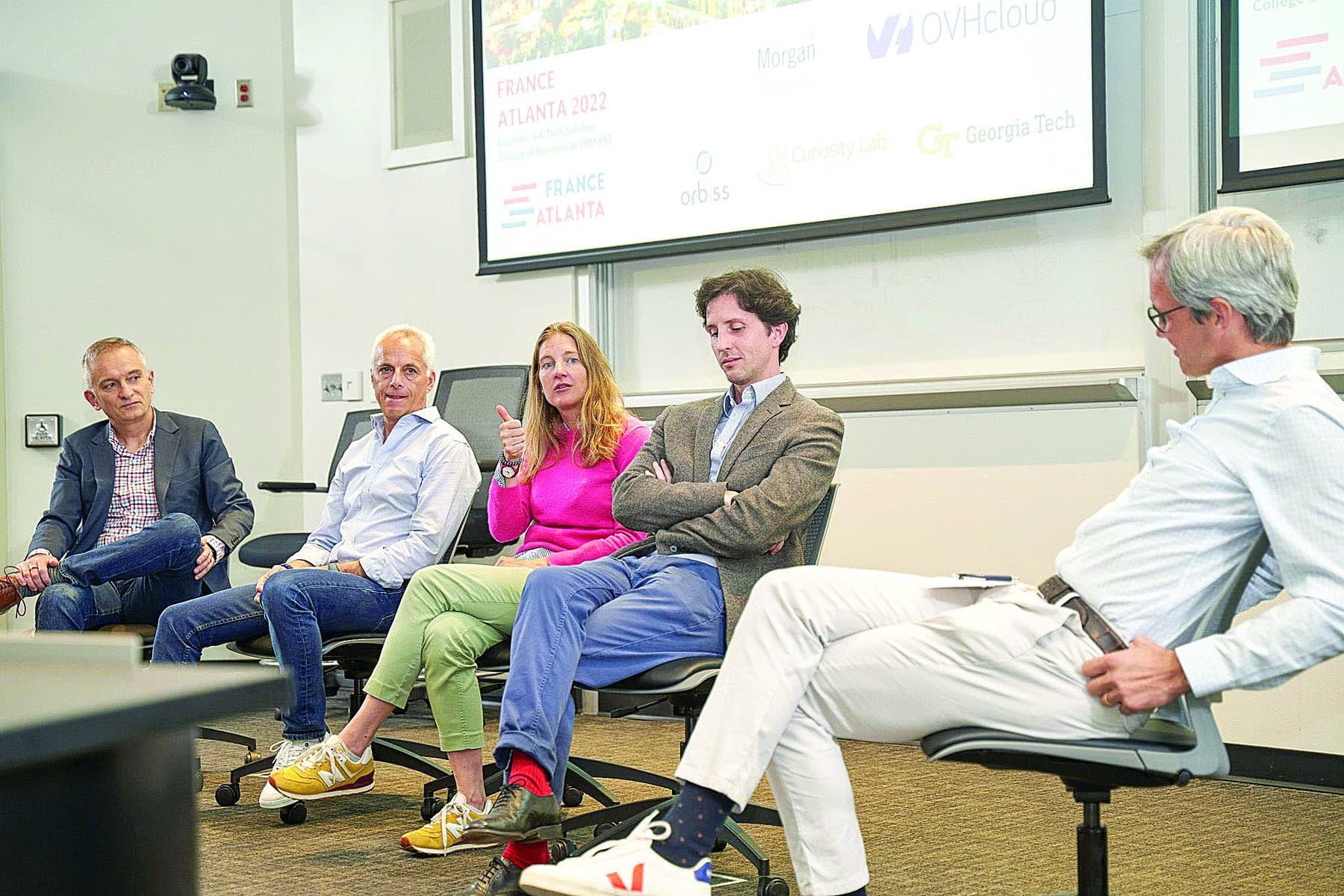
FACC boosts trade and investment between France and the Southeast.
Leaving behind airport-like security measures that allowed one-person-at-a-time access to the French Consulate building in Buckhead a year ago, The French-American Chamber of Commerce — Atlanta Southeast (FACC) planted its roots in the heart of Silicone Orchard. It has become a part of the innovation ecosystem of Curiosity Lab at Peachtree Corners and has much to celebrate.
How have things gone since they heralded their repositioning to a smart city with real-world connected infrastructure and 5G, using robot-delivered ribbon and scissors during their Peachtree Corners inauguration? I weighed-in with Katherine Lafourcade, Executive Director of the FACC since January 2021, to discuss how the well-timed relocation has played out to date.
Serendipity at its finest
It was perfect synergy — the strategic move to a vibrant tech environment in combination with the official launch of the La French Tech Atlanta community. Atlanta received this French government-backed accreditation in 2021. It’s now one of 12 American cities that aid French tech startups looking to branch into the United States and American tech companies looking to cross the Atlantic and branch into France.
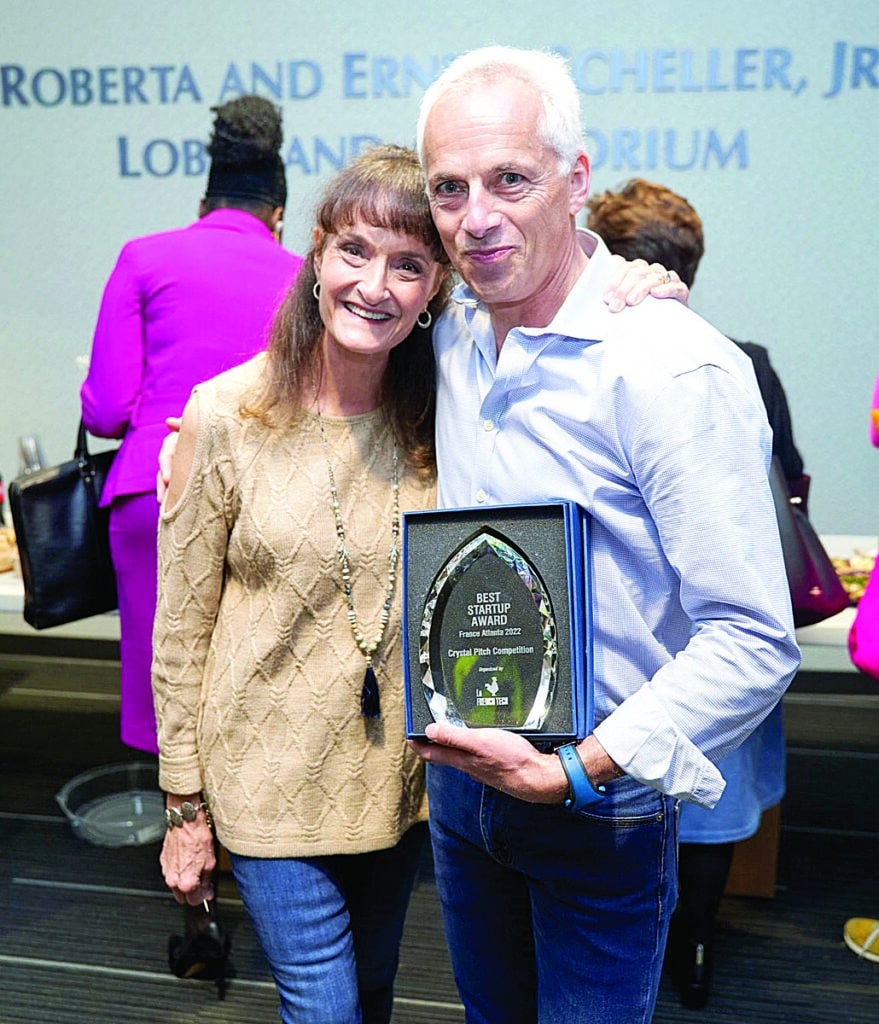
The La French Tech presence in Curiosity Lab, along with the FACC, solidifies Silicone Orchard as a startup hub — a desirable destination for international tech companies and investors.
Curiosity Lab enables startups to prove out new technologies in a real-world setting with infrastructure that includes cellular vehicle-to-everything (C-V2X) technology, autonomous vehicles, drones, robotics and solar roadways.
Lafourcade deems the move advantageous. “The space at Curiosity Lab is amazing,” she said. “There’s always something new and different happening. It’s always evolving. It’s fun to be in that environment. They’re digging holes, moving walls, there are drones, robots — kind of everything. What a great thing to be able to offer access to all of that as a chamber of commerce.”
With a terrific team of people and fluid connections to the wider community around Atlanta, the FACC intends to remain at Curiosity Lab for the long haul.
“Onward and upward! Curiosity Lab generates interest and piques people’s curiosity. It’s an easy sell. Peachtree Corners is unique. It’s pretty special,” Lafourcade beamed.
PTC — The host with the most
The city has embraced the FACC, offering support every step of the way. “Peachtree Corners has been an amazing partner. They help by sponsoring events. I joke that they’re ‘the Yes People,’ but they really are! They help in any way they can. I think they’ve been instrumental in the chamber doing as well as it is now,” Lafourcade said.
French American chambers exist solely through their membership and events. There are no subsidies or funding coming in from elsewhere.
After having been hit hard by the COVID outbreak, the FACC is presently thriving. Being in a milieu that attracts the interest of French technology companies looking to expand facilitates partnerships as the Chamber has much to offer.
“We work closely with the French Consulate, the Metro Atlanta Chamber,” Lafourcade said. “We have really great connections with the city and the mayor’s office of international affairs. We’re in the heart of a bustling community. Our location really helps that role.”
A hub of innovation, open-mindedness and an entrepreneurial spirit
While the FACC has a special focus on France, the collaboration and development expand to other European countries. In turn, the cosmopolitan nature of Atlanta and surrounding areas astonishes Lafourcade, who moved here from Switzerland.
“I’m a bit amazed at the number of people here who weren’t born here. People have come for work or other reasons, and everybody is thriving. I think that is due in part to local people, southern hospitality and warmth. There’s a welcome for everybody. It doesn’t matter where you’re from. The attitude is, ‘the doors are open. We’ll help you on your journey,’” she surmised.
Curiosity Lab PR and Strategy Representative Kelsey Neely confirms that the innovation center was an excellent option for the FACC headquarters, especially partnered with La French Tech and OVHcloud US, their alternative cloud provider.
“We have such a great international presence. The Curiosity Lab can act as a launch pad for these startups expanding in the United States, and potentially beyond,” Neely said.
She recollected the first French startup to join Curiosity Lab through the FACC and the La French Tech program, Urban Canopee. “They make structures that are placed in urban environments to help bring greenery back to the space, keep the air cleaner and fight climate change,” Neely explained. “We actually have one deployed in the city of Peachtree Corners Town Center.”
You may have seen the ‘corolle’ there; it’s a modular, vegetation-covered installment intended to cool down concrete city expanses by “greening them up.”
At the first ever Crystal Pitch Competition this past October, part of the France-Atlanta event series that has been running for 13 years, Neely witnessed some startups present their exciting entrepreneurial undertakings. She shared a look of intense satisfaction.
“You can see through [this] event, Atlanta is growing as a technology hub,” Neely said. “It’s being recognized across the country now as having a healthy startup ecosystem. We’re really happy to be a part of that.”
The Crystal Pitch StartUp competition
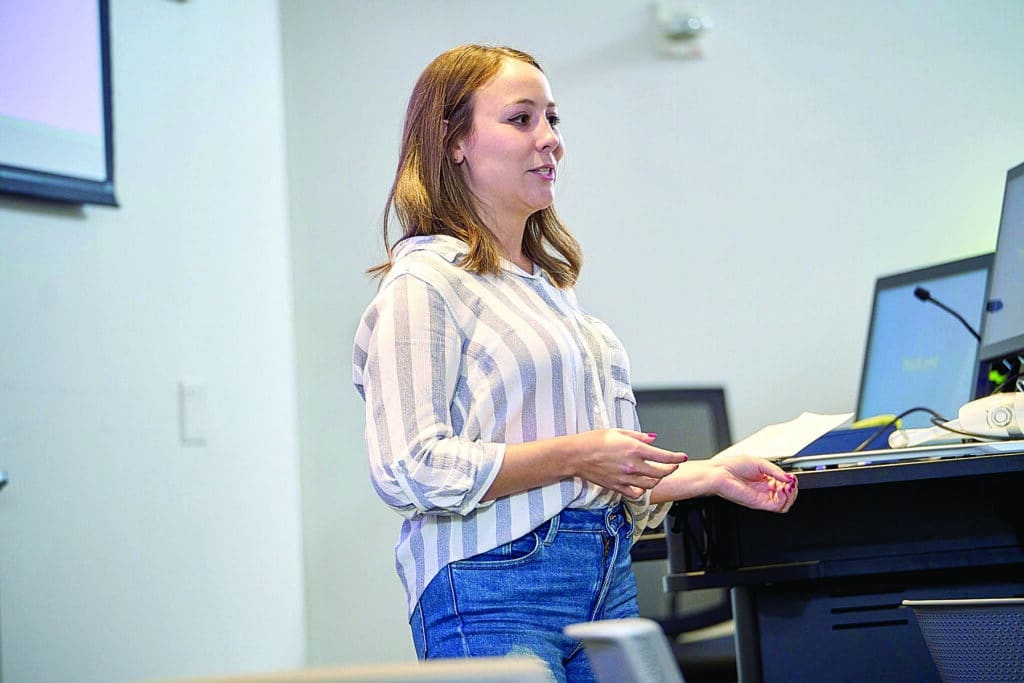
The October 24th France-Atlanta Evening in Tech was held at Georgia Tech and sponsored by Morgan Stanley, Peachtree Corners, OVHcloud US, Orbiss Inc. and Georgia Tech. Valuable startup pointers and insights were shared by seasoned entrepreneurs and keynote speakers Christine de Wendel, CEO of sunday; Bruno Jactel, CEO of Pertinent Health, who later pivoted and also pitched his startup Hypercell; Pascal Jaillon, SVP of Product and Digital Accounts at OVHcloud US; and Stanislas Normand, Exotec VP of Operations.
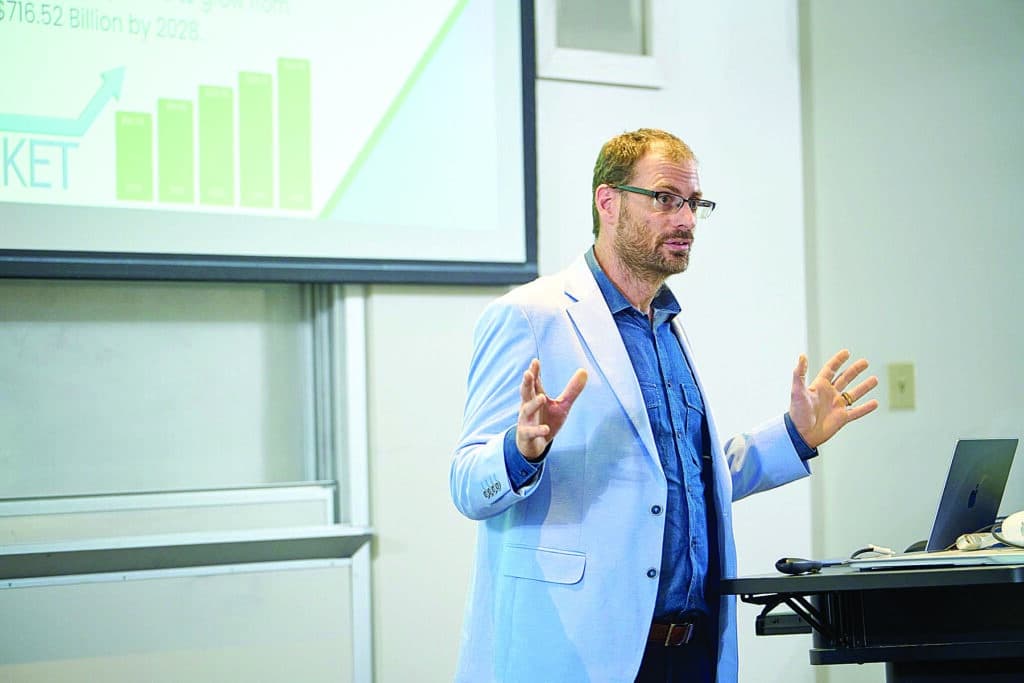
The Shark Tank-type competition ensued, highlighting Atlanta’s growing La French Tech community aimed at expanding local and France-based startups in Atlanta, the Southeast and in Europe. The atmosphere was exhilarating; it was “on” between five startup companies.
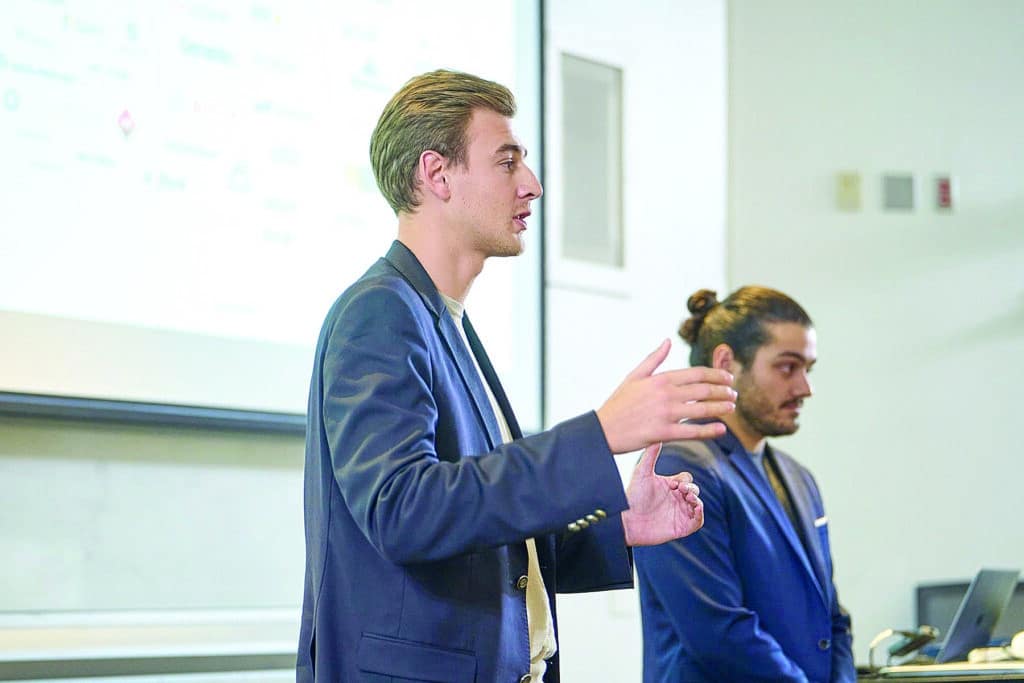
Entrepreneurs had a limited time to pitch their ideas to a panel of judges in the hopes of winning prizes like $120,000 in OVHcloud US credits, a year of desk space at Curiosity Lab, tax and accounting support from Orbiss Inc., two tickets to the France-Atlanta Gala (the signature business event of the FACC) and mentoring by La French Tech and French Trade advisors.
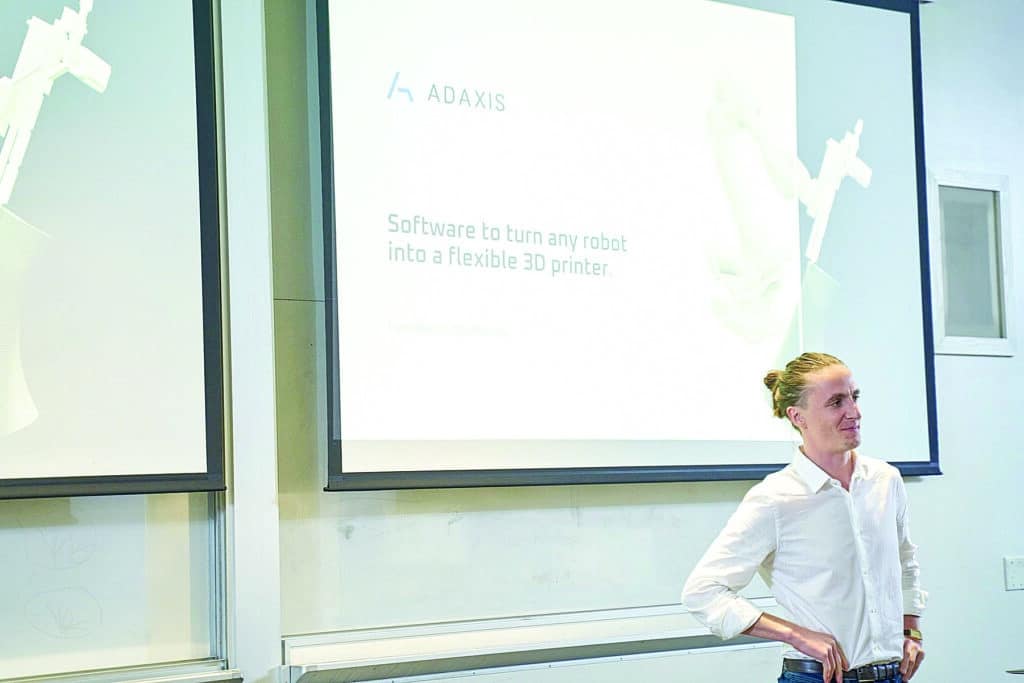
The competing startups
Covering their inventive solutions, future plans and the global impact their businesses will have, the startups presented in the following order:
- Strapt Vending — Recognizing a change in consumer purchasing, Founder and CEO Carly Simenauer developed dispensers as vehicles for consumers to sample products in a controlled way using a QR code. The premise is that users are more engaged after they’ve been able to try a product for free.A rapid authentication process to obtain the free samples allows companies to follow-up with and funnel consumers via email afterwards. Intended for feminine hygiene and personal products, Strapt helps companies bring new products to market.
- Rebillia Platform — Co-Founder and CEO Snir Avidan presented flexible subscription management software that puts today’s consumer in control. Apparently, allowing customers to create their own subscription plans was a real hit.There are four million end users of this system, it forms the backbone of several famous brands and it has all been through word of mouth. They’re proud to have spent $0 on marketing.
- Videtics —Videtics offers intelligent video analytics software, AI for the sake of mankind – think a surveillance revolution, of sorts — for security, to track shopping habits in a mall or to address congestion and mobility shifts in cities. Deep Learning Engineers Alan Farbach, co-counder and CEO, and Pierre-Alexis Le Borgne, co-founder and head of research, pitched their simple business model.A license per camera costs 500 € annually and the software can be integrated so clients may keep what they’ve already installed. They hope to experiment in Peachtree Corners, testing the accuracy of their algorithms.
- Hypercell Technologies — Bruno Jactel, CEO and co-founder, delivered the winning pitch of the night with a solution to help prevent future pandemics by implementing rapid diagnostic monitoring and control of viruses in the food chain, specifically in animal reservoirs. Due to recent events, the appeal of mitigating the spread of infectious diseases to reduce cost and shield the human population is easy to appreciate.
- ADAXIS —Based in Bayonne, France, this company aims to streamline the additive manufacturing industry by reducing human intervention. They’ve created a software platform capable of transforming any robot into a flexible 3D printer and have shown promising traction with over 30 customers in Europe, America and Asia.
Vive la réussite!
When I inquired about the criteria for participation in the Crystal Pitch competition, Sébastien Lafon, President of La French Tech Atlanta replied, “It was really for U.S. startups with the ambition to launch their businesses in Europe, using France as a platform. For French startups, it was to see how they are thinking about their business plan to expand into the United States. No series A, B, C or D. We just want to create those relationships between French and American startups!”
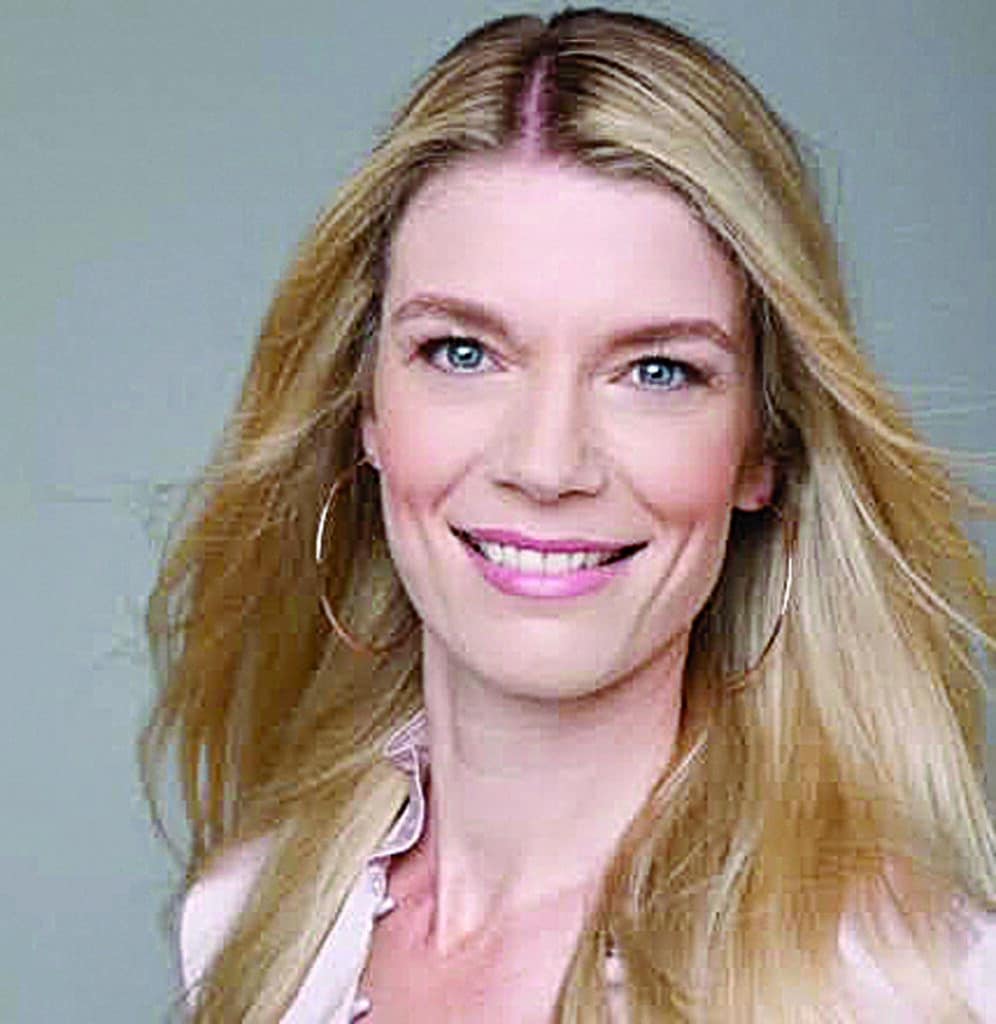
Lafon views Peachtree Corners as an invigorating place for the opening of La French Tech Atlanta. “You can see how Curiosity Lab continues to generate interest. We had several companies today that are interested in partnering with Curiosity Lab for the Smart City concept. We are incredibly fortunate and thankful to partner with Curiosity Lab,” he said.
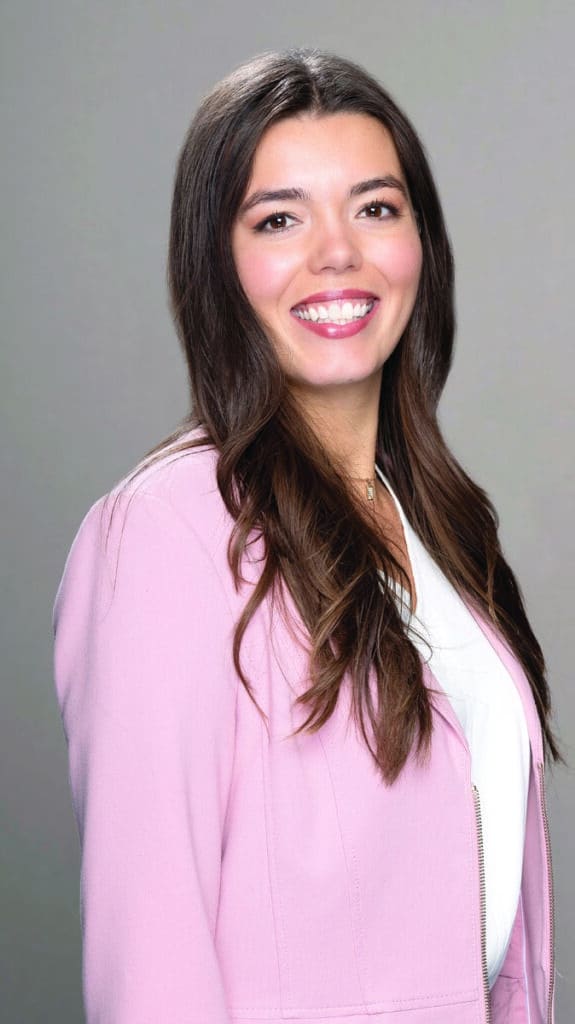
On the heels of their first anniversary at Curiosity Lab, Lafon declared, “We are happy we had an event like this. Twenty-two startups applied for the competition. This event generated so much interest, we’ll see about maybe having it twice a year.”
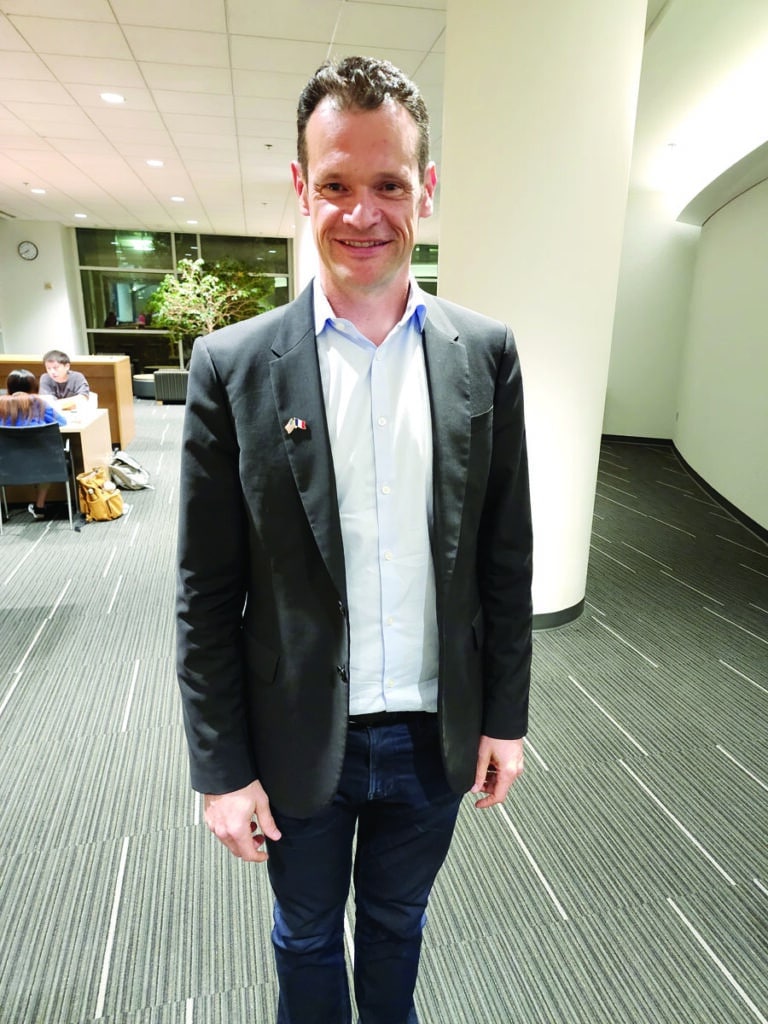
More La French Tech social events that foster French-American startup relationships can be expected.
As for the FACC, all signs point to Lafourcade having every reason to be confident in her snowball-effect vision of the future: increasing members and interest, creating additional connections and helping even more businesses. It’s a plan that seems destined to materialize, in large part, because they are now headquartered in Curiosity Lab at Peachtree Corners. As if our fair city wasn’t alluring enough, the French connection gives Peachtree Corners an additional dose of je ne sais quoi, wouldn’t you agree?
Related
Patrizia hails from Toronto, Canada where she earned an Honors B.A. in French and Italian studies at York University, and a B.Ed. at the University of Toronto. This trilingual former French teacher has called Georgia home since 1998. She and her family have enjoyed living, working and playing in Peachtree Corners since 2013.

Business
The Forum Gives Sneak Peek of New Eateries and Community Spaces
Published
2 days agoon
July 24, 2024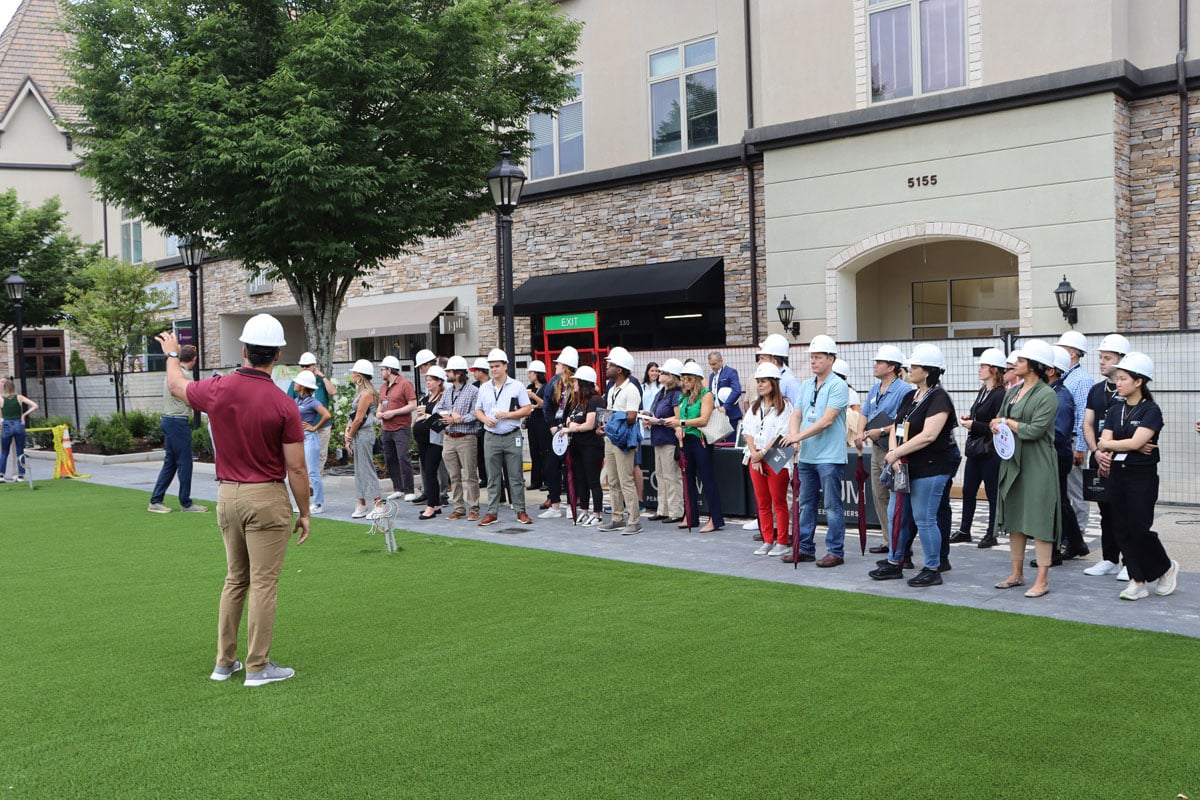
If you’ve been to or near the Forum in the past few months, you’ve probably noticed cranes and construction crews. The anticipation of the first phase of renovation of the 22-year-old retail center has left a lot of Peachtree Corners residents as well as nearby patrons excited to see changes.
The Forum administration invited the media for a hard hat tour on July 17. The event showcased the redevelopment progress ahead of The Plaza’s grand opening on Aug. 8.
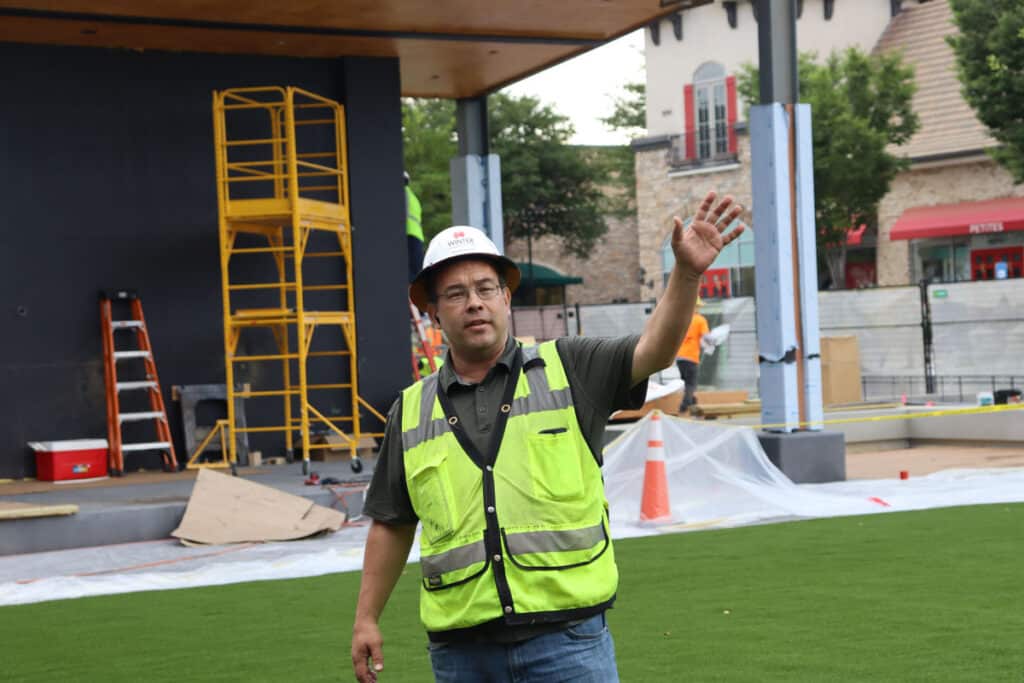
Scrumptious bites incoming
Executives from the development and leasing teams joined on-site management and led attendees around the new central gathering space, guest amenities and Politan Row, the newly created 10,000-square-foot food hall.
Dining concepts from veterans at Sheesh, Twenty-Six Thai and newbie Gekko Kitchen were the first food vendors announced for the space, which is expected to open in January.
“We can’t wait to introduce the Peachtree Corners community to our food hall experience,” said Politan Group CEO Will Donaldson in a news release. “Every detail from the design to the bar program to the cuisine is thoughtfully curated to inspire guests to not only mingle with one another but to connect with our incredible restaurateurs and discover new favorites.”
During the tour, Donaldson explained that eventually there will be seven different global cuisines in the Politan Row food court at the Forum featuring well-known and up-and-coming local talent. Once complete there will be a central bar, a private event venue and a covered outdoor patio.
“One of the things that we’re excited about is this unique design that we’ve come up with, that’s very specific to this area,” he said. “We’ll be open seven days a week for lunch and dinner. Whether you’re with a group for lunch or with your family, it works great for multiple settings.”
Twenty-six Thai owner Niki Pattharakositkul said the restaurant will work with local vendors to source the freshest meats and produce possible.
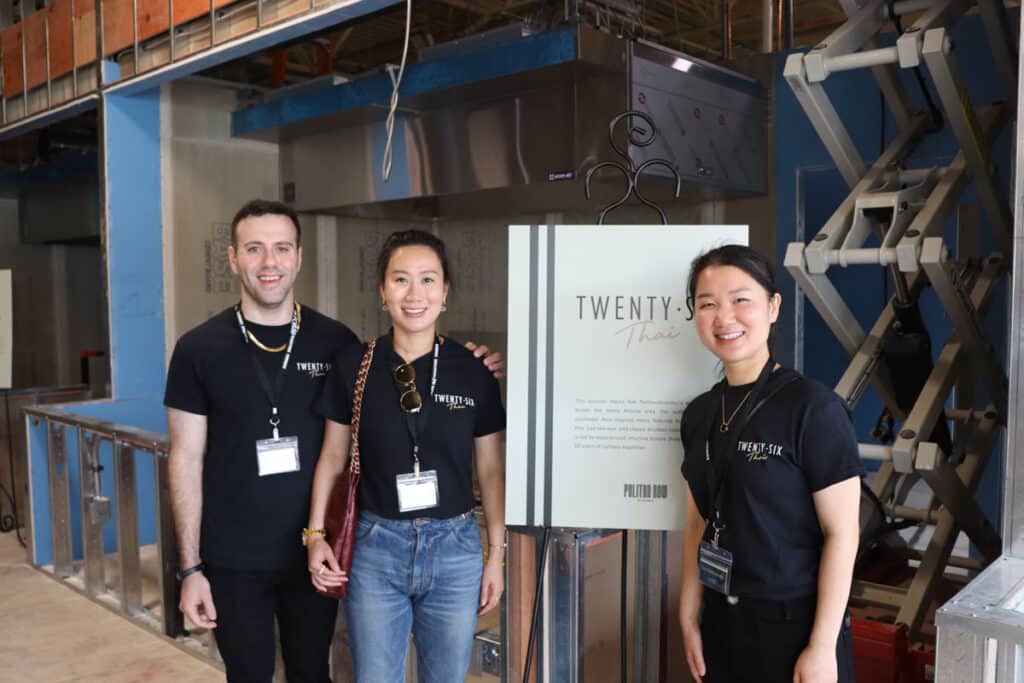
“There are certain types of produce and protein we try to source locally, but sauces and the more exotic produce and herbs, we have to import from Thailand,” she said. “Our brand is trying to move towards doing things locally and sustainably.”
Working with organizations such as Georgia Grown limits the use of large food distribution companies. Since starting Twenty-six Thai in 2016, Pattharakositkul has launched seven locations across metro Atlanta, including at Politan Row’s Ashford Lane and Colony Square.
The eatery describes itself as an “authentic wok-fired Southeast Asia-inspired menu featuring items such as pad Thai, pad see ewe and classic drunken noodles.”
Sheesh, a Mediterranean concept that uses simple, wholesome ingredients prepared with unique spices and blends, is run by corporate executive chef Charlie Sunyapong and director of operations Raquel Stalcup. The two are also members of the group behind full-service restaurants Stäge at Town Center and Pêche at the Forum.
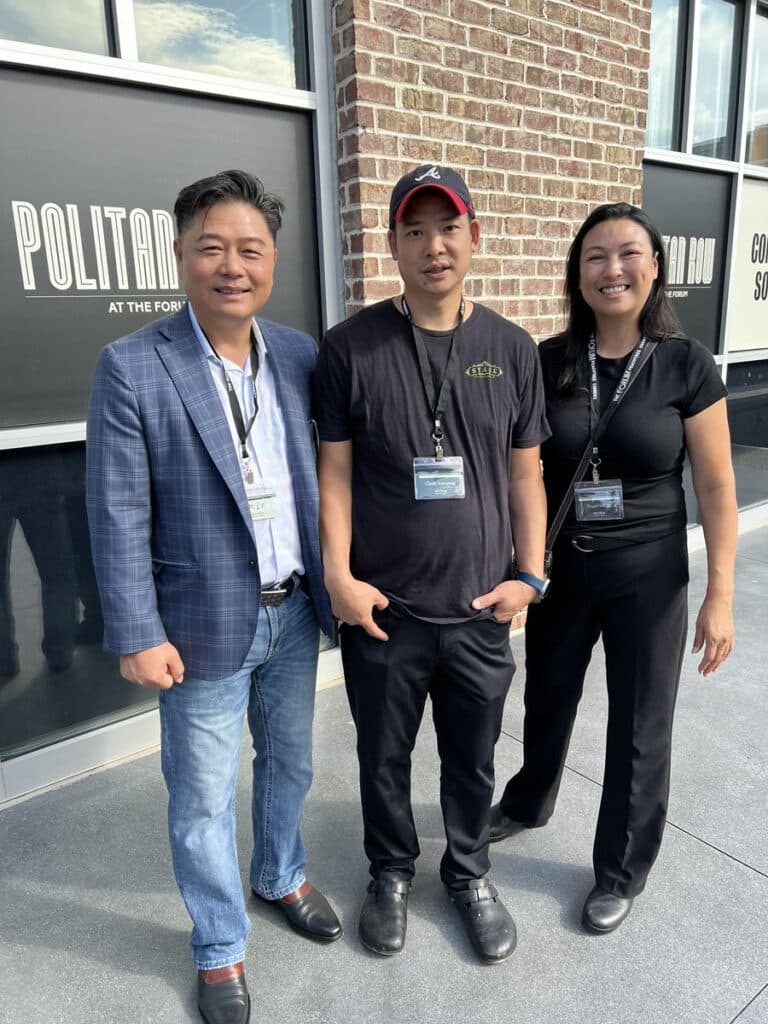
The popularity of those suburban concepts has already taken off. With Sheesh, they’re looking to do something different.
“There are going to be some things that are unique to Sheesh that you’re not going to get at the other places,” said Sunyapong. “You’re not getting a whole restaurant; this is quicker fare.”
Gekko Kitchen, a former food truck transformed into a hibachi and ramen experience, will be serving fresh, fast bowls that are more colorful and lighter than traditional hibachi fare.
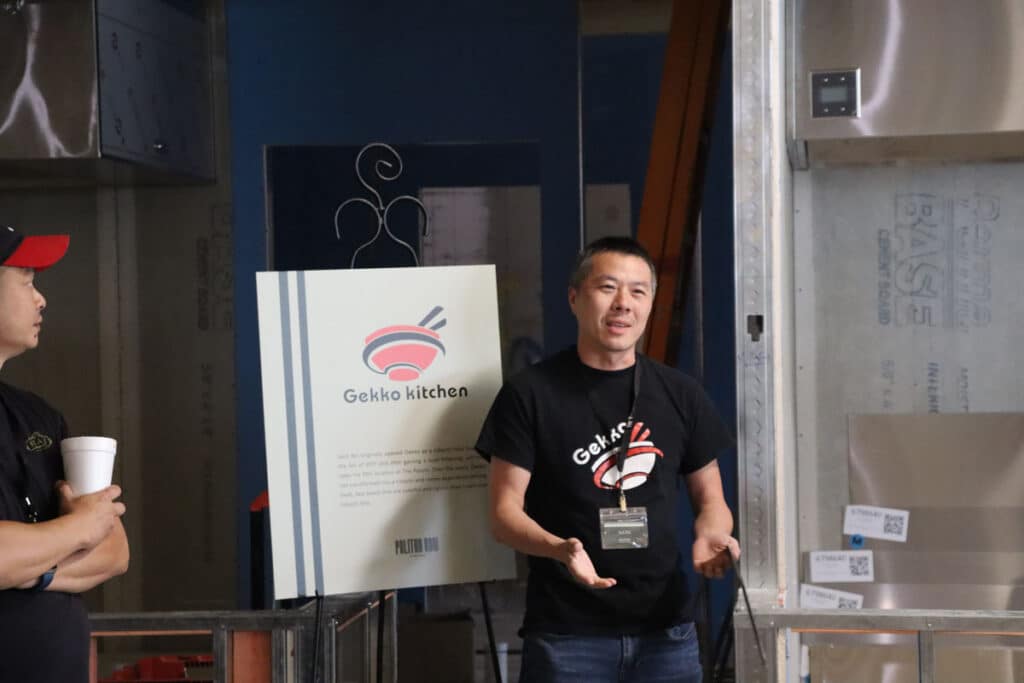
Gathering spots
Development Manager Nick Lombardo explained that NAP is moving away from building big construction projects from scratch like Colony Square in Midtown Atlanta and Avalon in Alpharetta.
“As a company, North American Properties pivoted around 2020 from building big ground-up construction to more redevelopment with already existing properties,” he said. “With the thought of great assets that just need a little more attention Infused into them to create value, we bought the Forum in 2022.”
He said that value-add propositions done at The Forum will create a more walkable center.
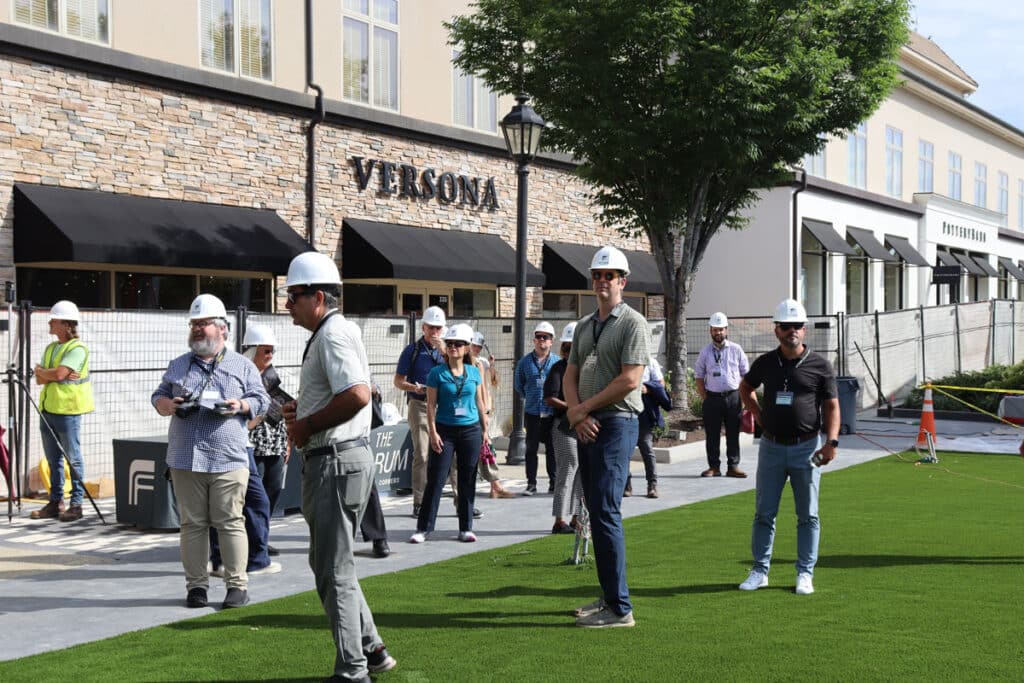
“Trying to compete with the internet on convenience is a very tough task, so the way we differentiate is by experiences,” he said. “We host between 150 to 200 events every year. We have things like concerts, wellness and fitness events and we have child playtime events. Our marketing team does a great job and they’re the differentiator when it comes to what makes our property stand out.”
By the first week of August, a large gathering space will be unveiled in the central area of the property between Pottery Barn and seafood restaurant Pêche. It will have a nine-foot LED screen capable of hosting movie nights and sports viewing. There will also be musical performances featuring local artists.
“We’re not in competition with Town Center,” said Charlotte Hinton, marketing manager at The Forum. “Town Center has gates like a real music festival and we’re more like a ‘chill and enjoy the music’ vibe where you can grab a beer and hang out or maybe kind of walk around.”
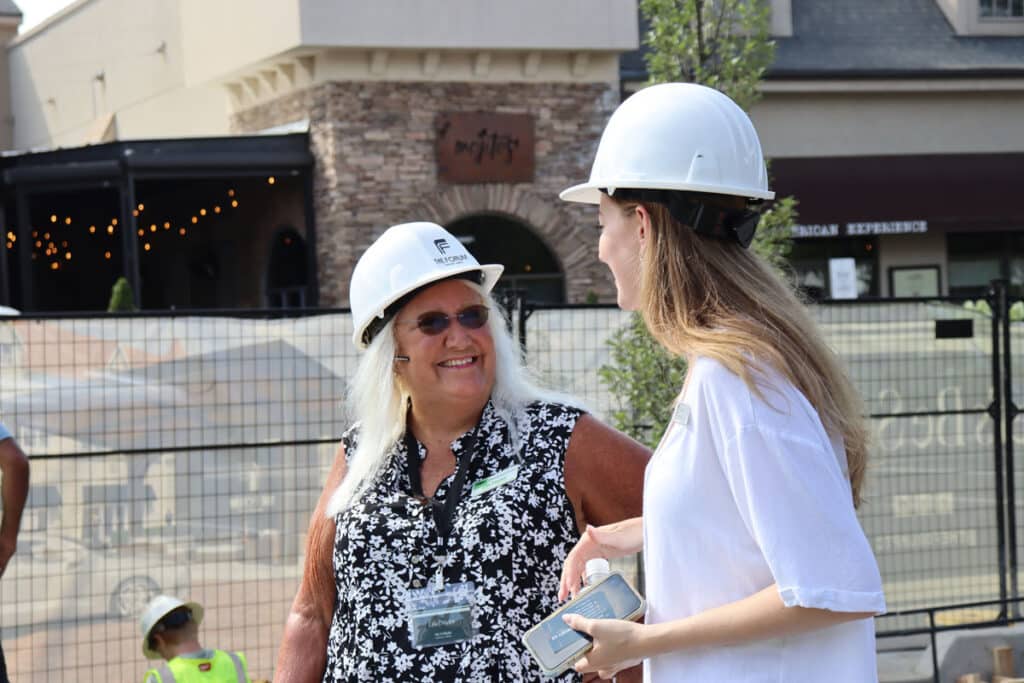
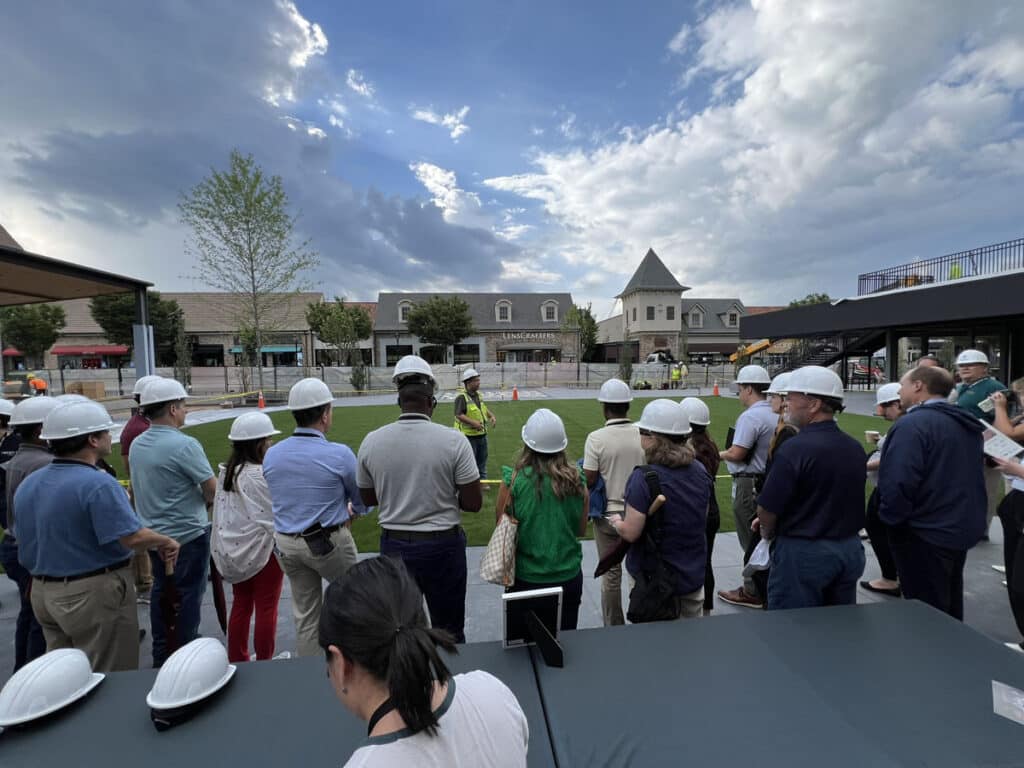
The smaller space and artificial turf are unlike the Town Center space where attendees spread blankets and bring chairs. The Forum will have furniture and seating in the space so folks can just gather and either enjoy time with family or partake in events.
The Forum will also offer valet parking on a limited schedule at that end of the property.
More improvements
Although the construction equipment will have moved out, the jewel box building will house a yet-to-be-named restaurant that will open early next year.
“We’re pretty much done with what we’re doing as far as landlord work,” said Lombardo. “We ask our tenants to bring their brand and their design and their material pallet and put that on the building to express their brand identity. They know their brand better than we do. They know how to best design their building and how it functions and works.”
It’s the same process with retail stores, he added.

“We always ask all of our new tenants to come in here when they’re building their storefront,” he said. “They’re not just selling their clothes; they’re selling a lifestyle in the brand so we ask them to push their brand out to the street.”
Even with the new spaces, there will be no shortage of parking, Lombardo added. “There’s plenty of parking behind these buildings,” he said pointing toward Pêche. “What we’ve done is enhance the connectivity to those areas. We’ve redone this breezeway and we’re adding lighting and connecting the parking lot to the main boulevard here. The goal is to replace cars with people and activity and bring a sense of community to the property.”
Related
Business
Taste of Peachtree Corners: PCBA Showcases Local Restaurants
Published
1 week agoon
July 17, 2024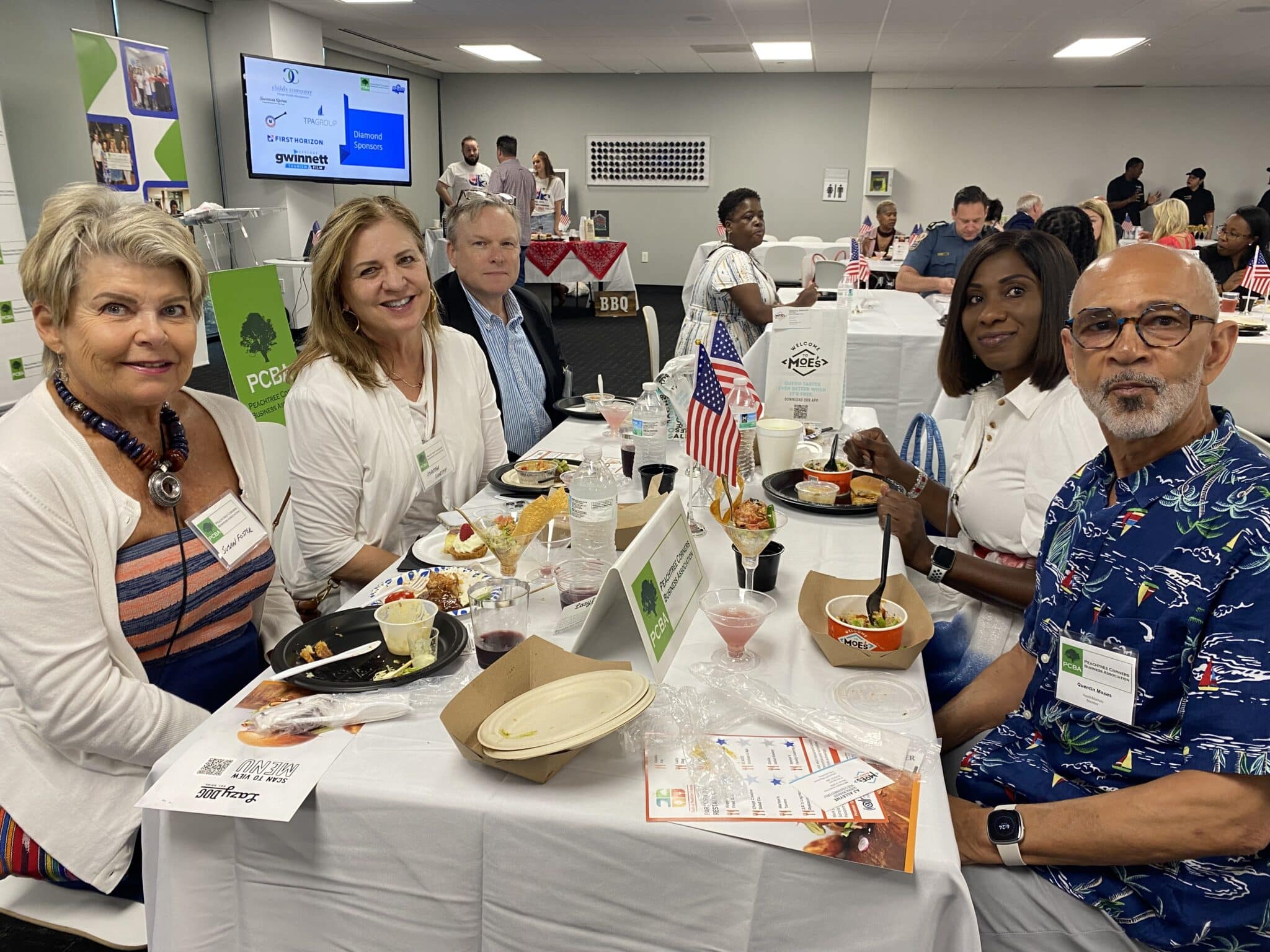
The Taste of Peachtree Corners has been in the works for years, but the COVID-19 pandemic put many key events on hold for the Peachtree Corners Business Association (PCBA).
But luckily this year, the dedicated staff of volunteers successfully executed a memorable event and introduced a lot of local business owners to their neighboring restaurants and caterers.
As I walked up to the Community Chest Room at Peachtree Corners City Hall on June 27, there was a line outside the door. I later found out that over 100 people had registered to attend the event. I got checked in quickly and was faced with a “passport” of 10 Peachtree Corners restaurants serving everything from high-end bakery items to good old-fashioned barbecue, and modern twists on seafood and American cuisines.
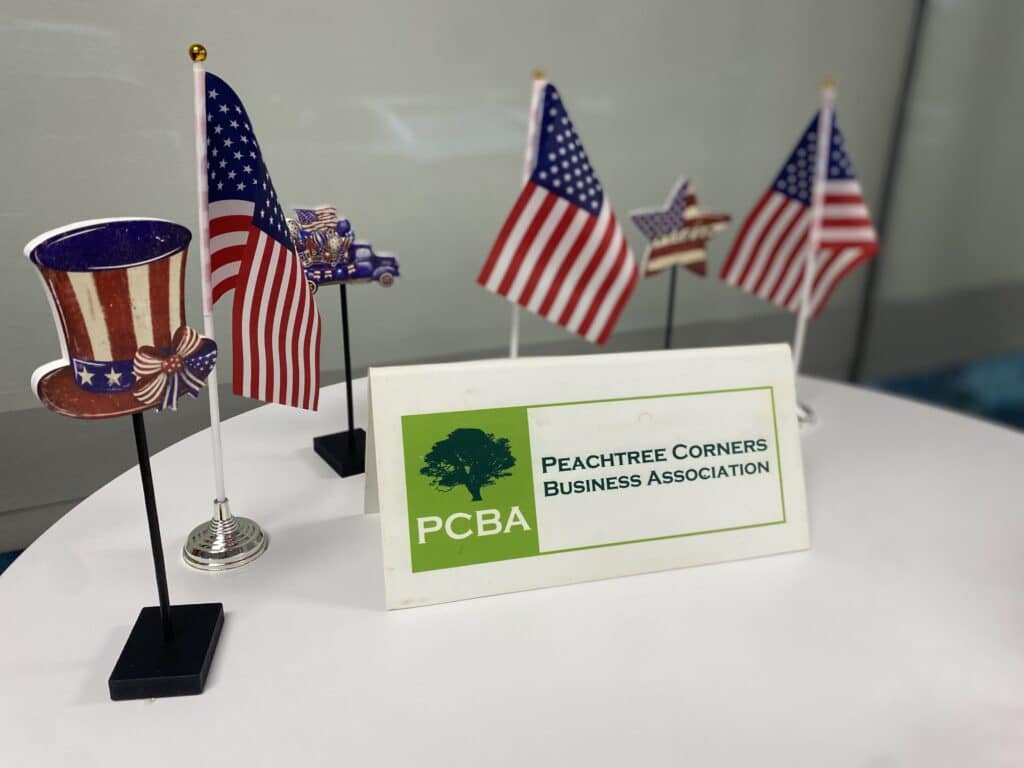
Let’s talk about the food
The idea was to visit all 10 restaurants and collect stars while trying samples and small plates. My first stop was Firebirds Wood Fired Grill, and they had my favorite – homemade chips and queso. The queso was smoky and mildly spicy with a great depth of flavor. What a great start. Next up was Chopt. Creative Salad Co. I had never heard of this restaurant before, but they blew me away with a perfect amuse-bouche of cherry tomato, pesto, mozzarella, and olive oil. These guys understand simple and fresh Mediterranean flavors.
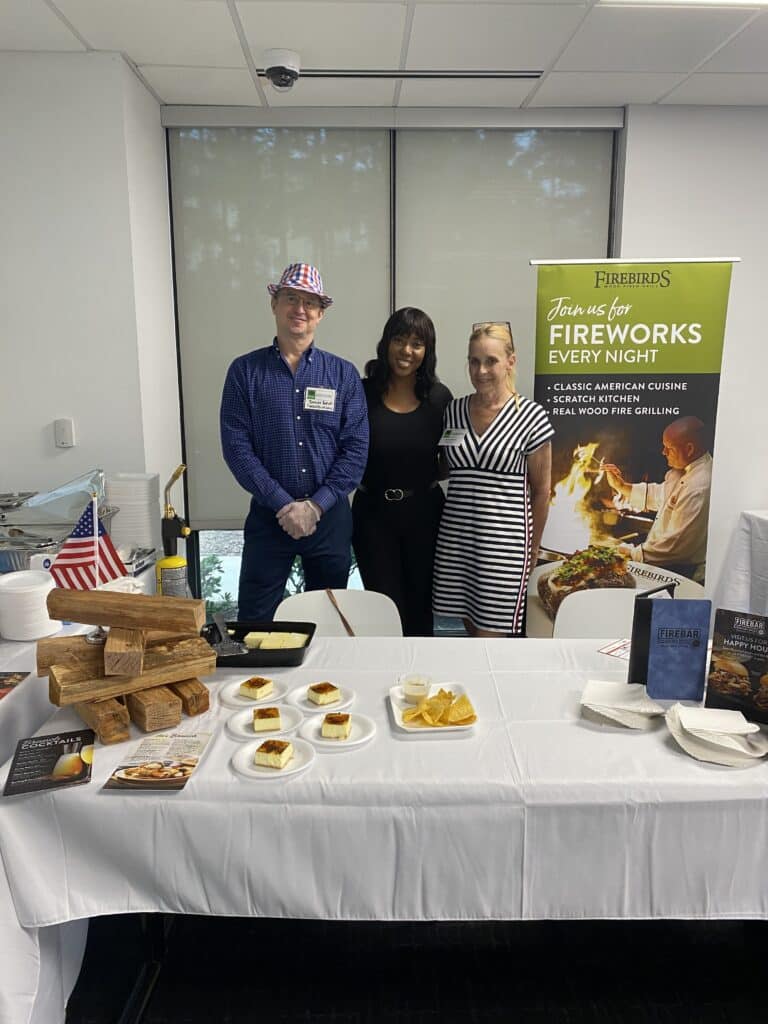
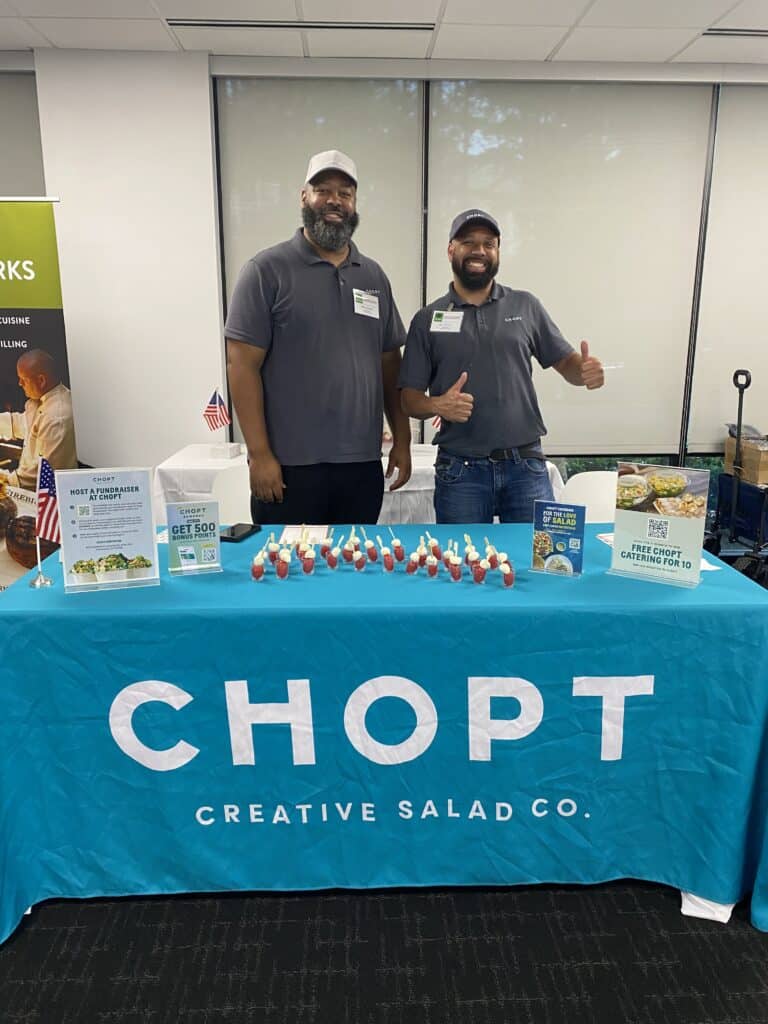

The folks from Marlow’s Tavern were also on-site serving shrimp and grits with jalapeno, spinach and tomato beurre blanc. This is definitely the style of elevated food I’ve come to expect from Marlow’s. And as a nice touch, they prepared a refreshing blueberry cocktail.
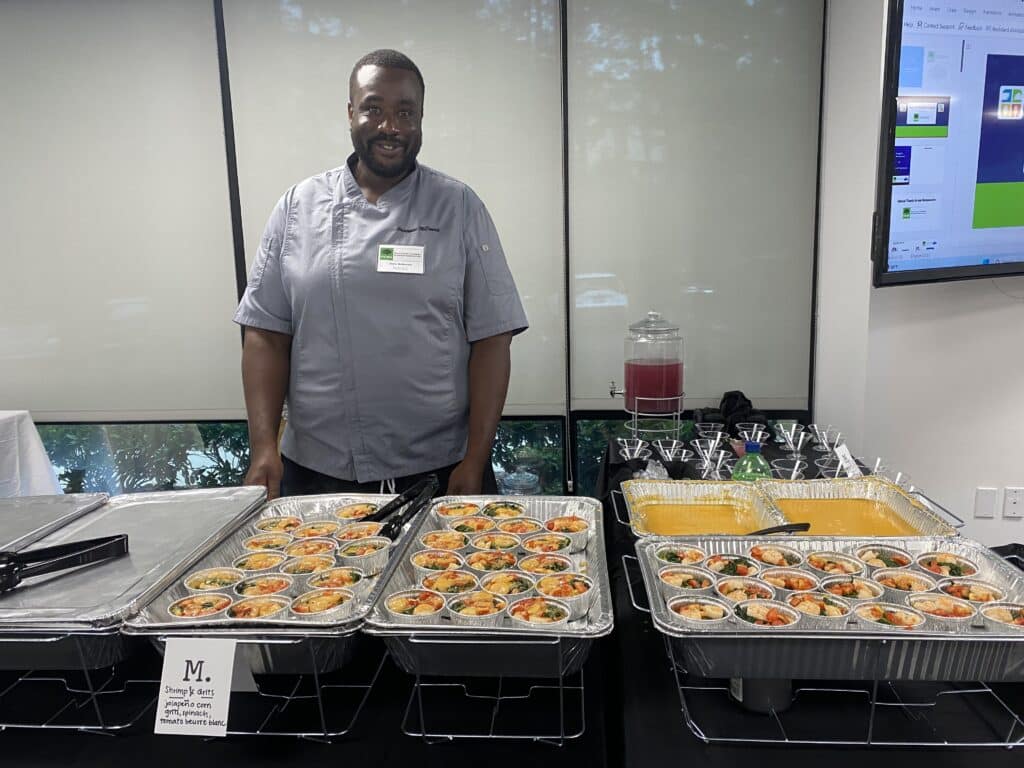

Another familiar face was set up on the other side of the room. J.R.’s Log House Restaurant served southern favorites like pulled pork sliders, baked beans and mac n’ cheese. I couldn’t pass this one up. The pulled pork was tender, tangy and saucy. Exactly what I want from a barbecue. Lazy Dog’s table really impressed me with its presentation. The tuna cup with rice, avocado and chili with chips on the side, was a real stunner.
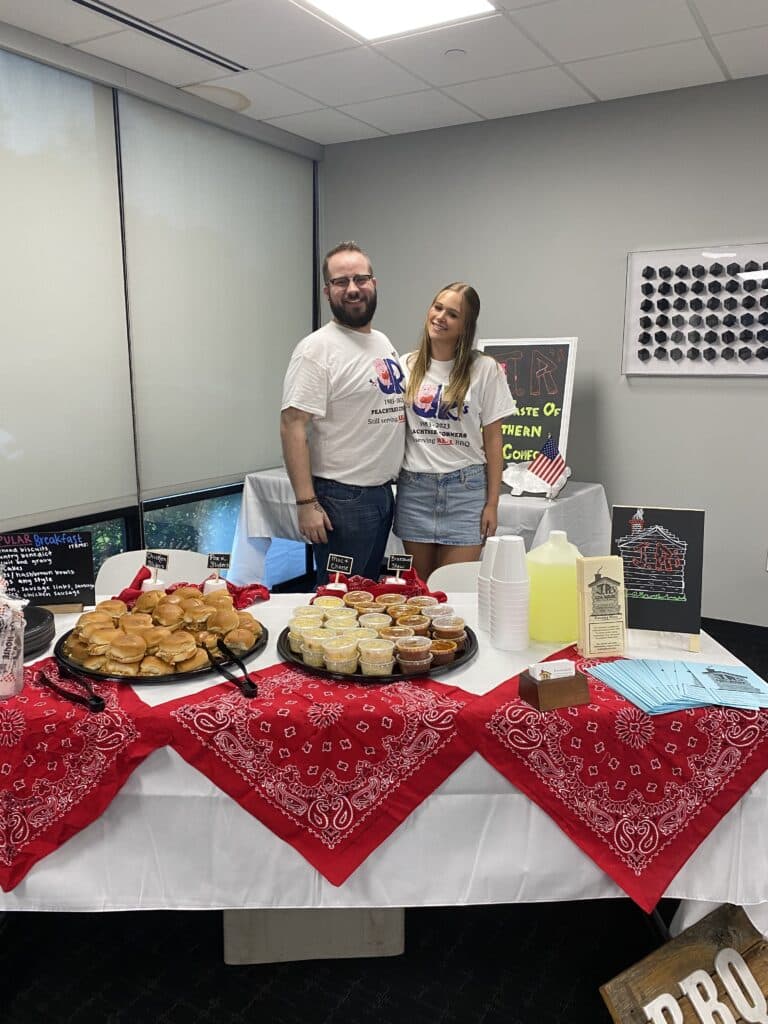
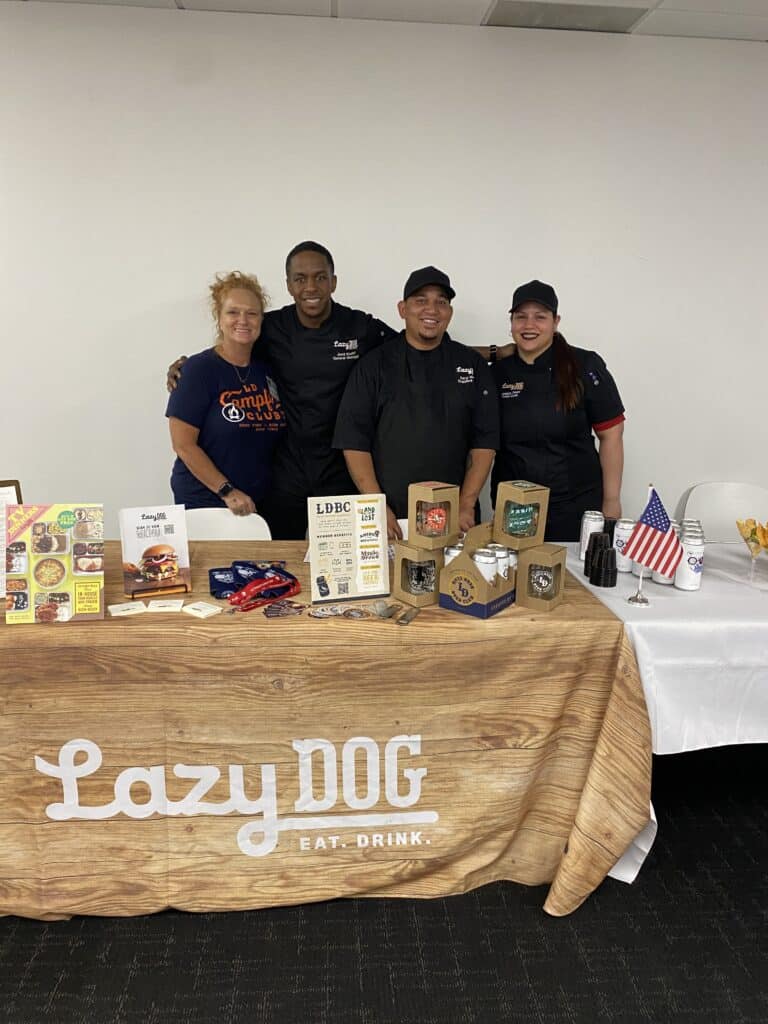
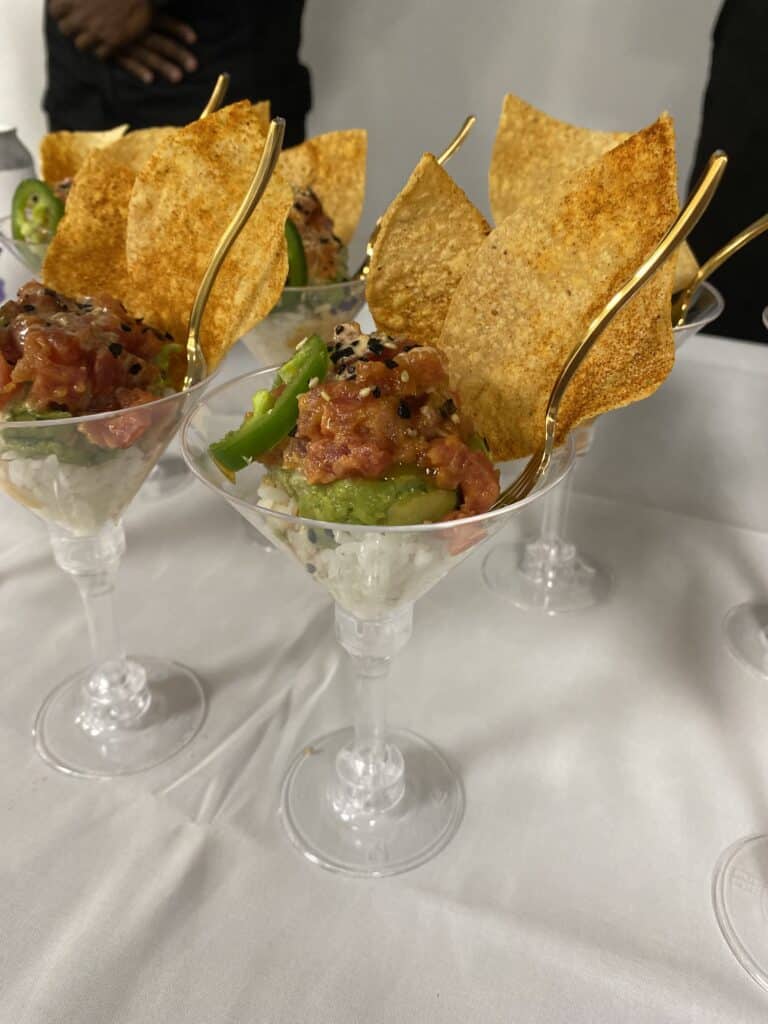
Moe’s Southwest Grill was also on-site handing out tasty tequila lime chicken with rice, avocado, and black beans. This super hearty and comforting entrée was followed by a seafood course from PECHE Modern Coastal. Crab cakes with a croissant pinwheel, roasted garlic and lemon aioli and arugula were on the menu and the flavor combinations were simply fantastic.
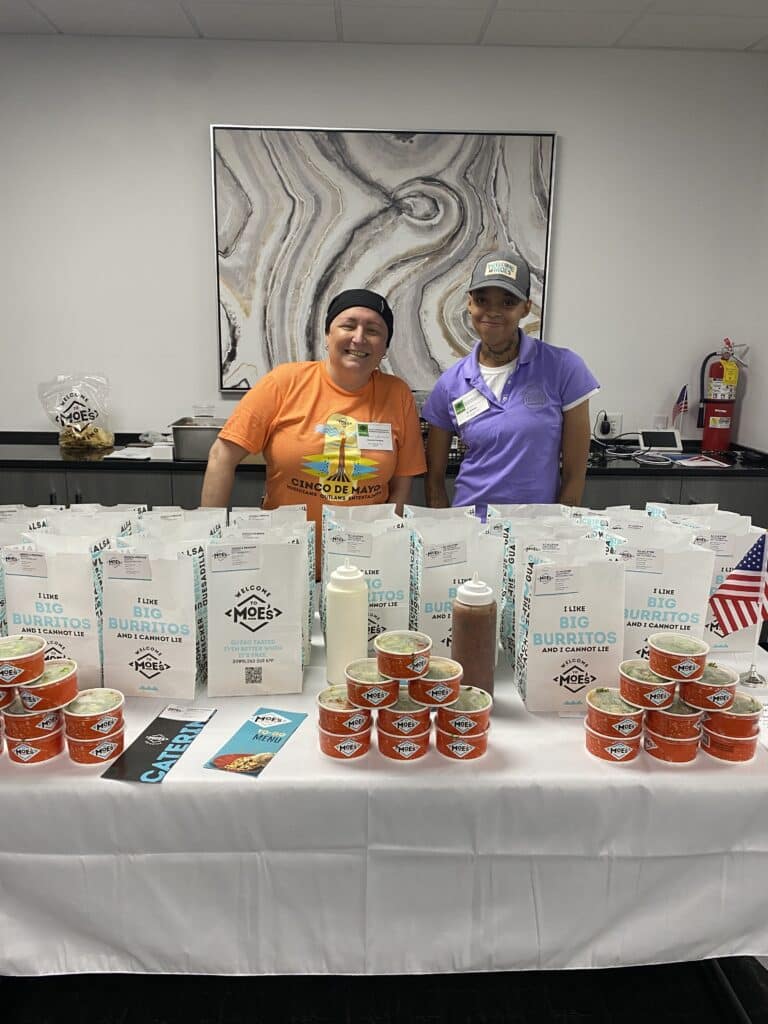
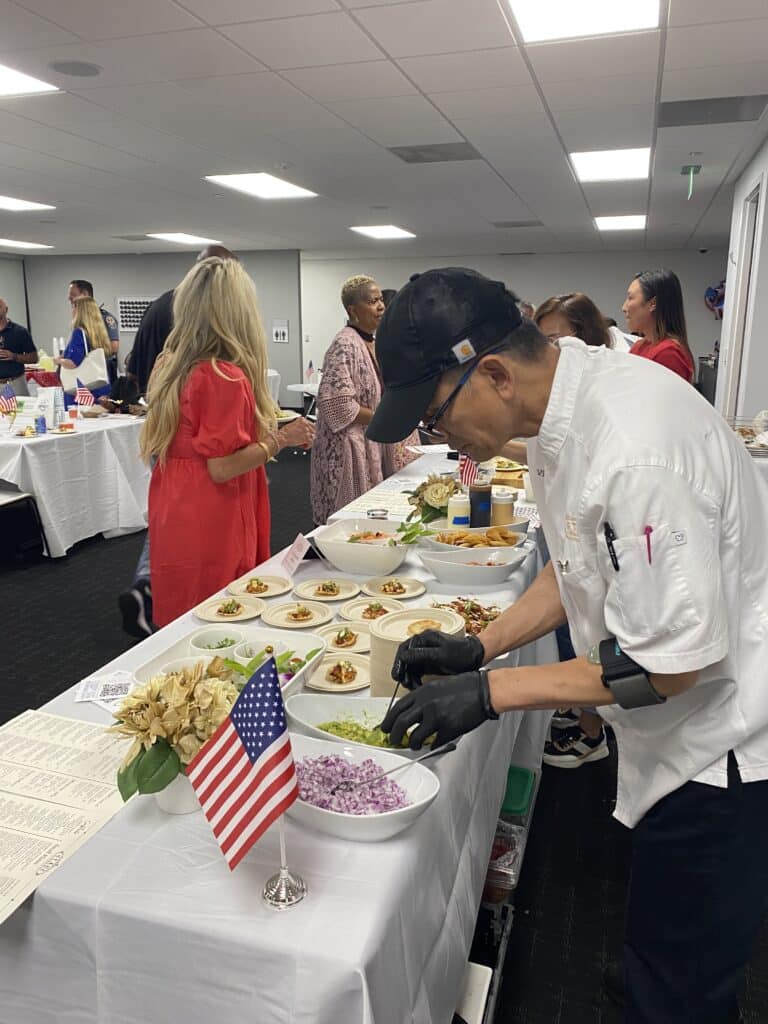
PECHE’s sister restaurant STAGE Kitchen & Bar was next door offering a tuna and salmon tostada with avocado, eel sauce, spicy mayo, and cilantro. This was easily one of my favorite bites of the night. The tostada was crunchy and light with clean and bright flavors. No kidding, I could probably eat this every day for lunch.
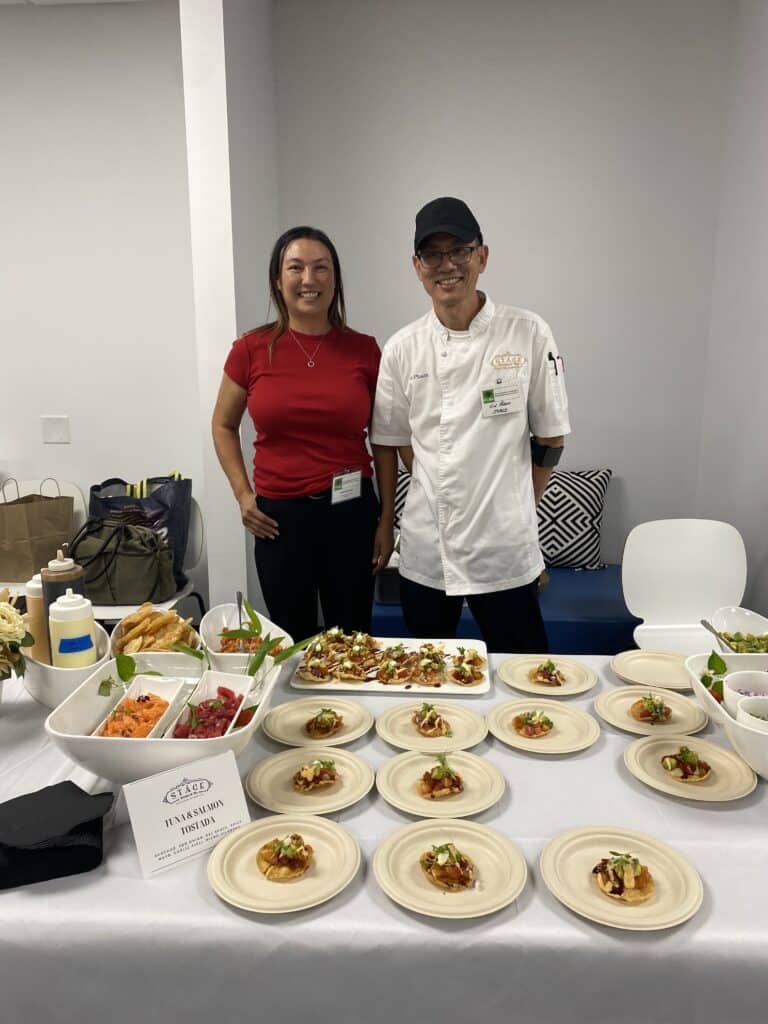
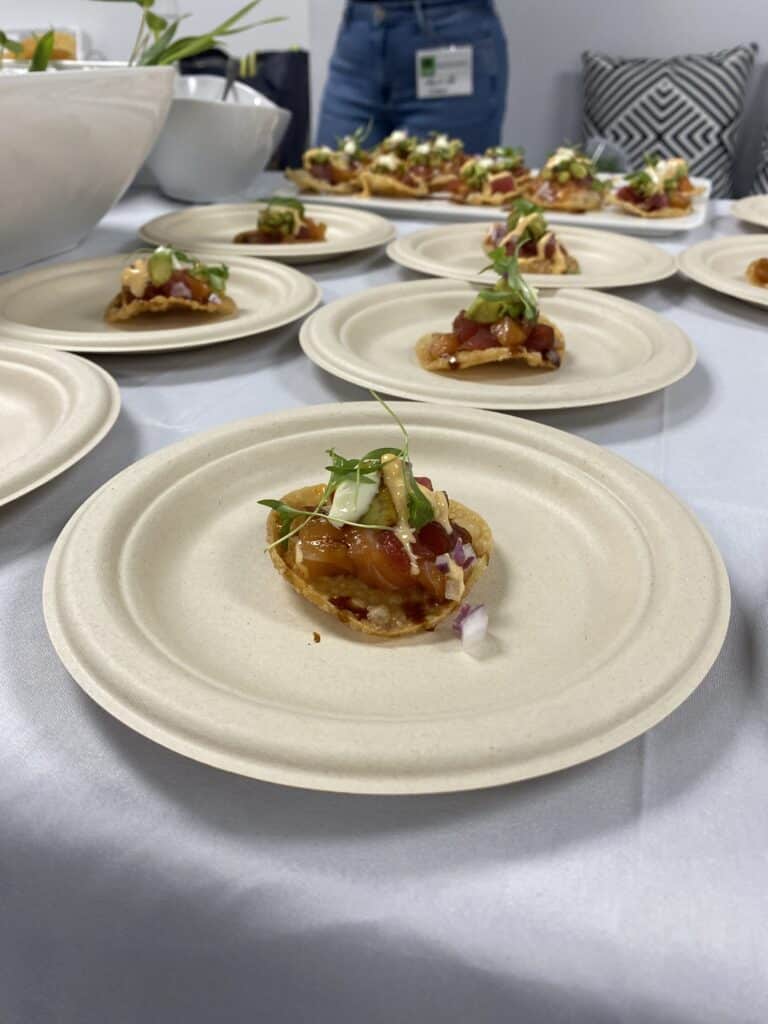
I moved on the Smoke’s Family Catering and owner Phillip Smoke had whipped up enough barbecue to feed an army. I had the pleasure of trying the smoked chicken with potato salad and it was the perfect pairing. Last but not least: dessert. I capped off the evening with a beautiful chocolate ganache-filled croissant with perfect lamination and flaky texture.
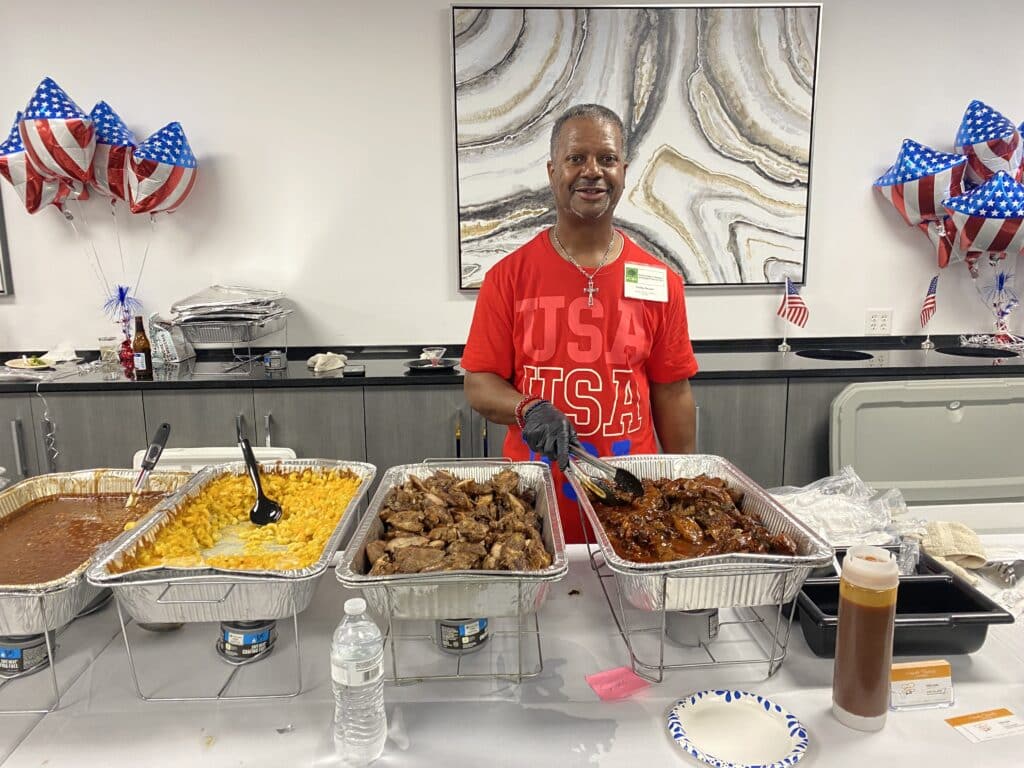
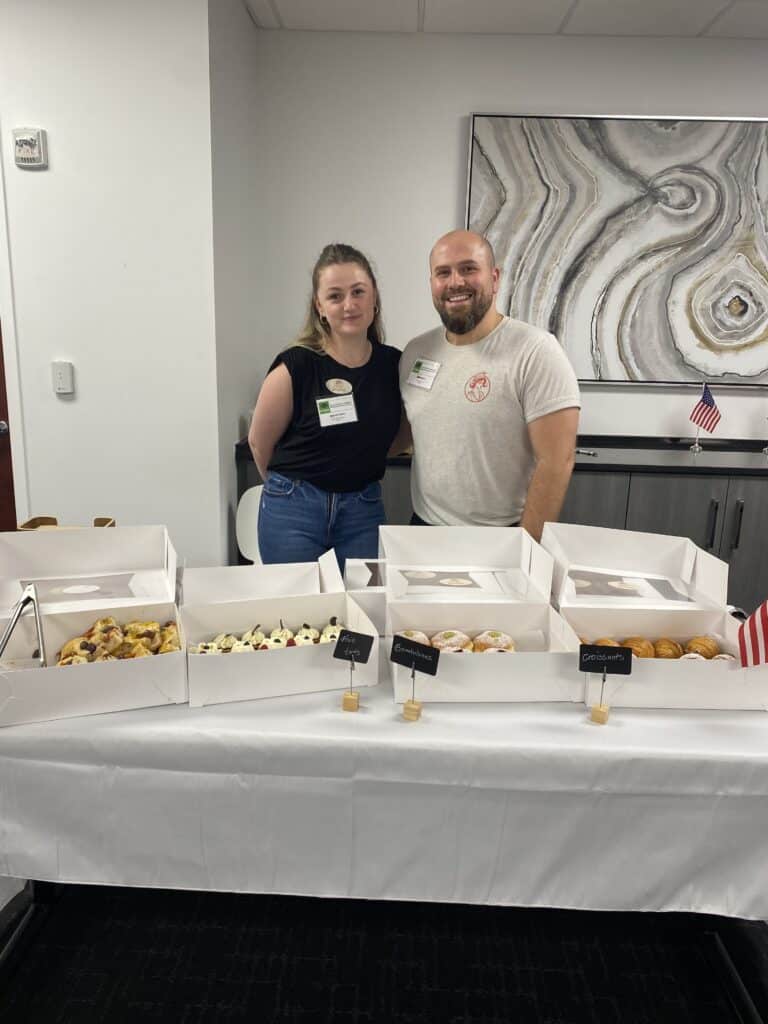
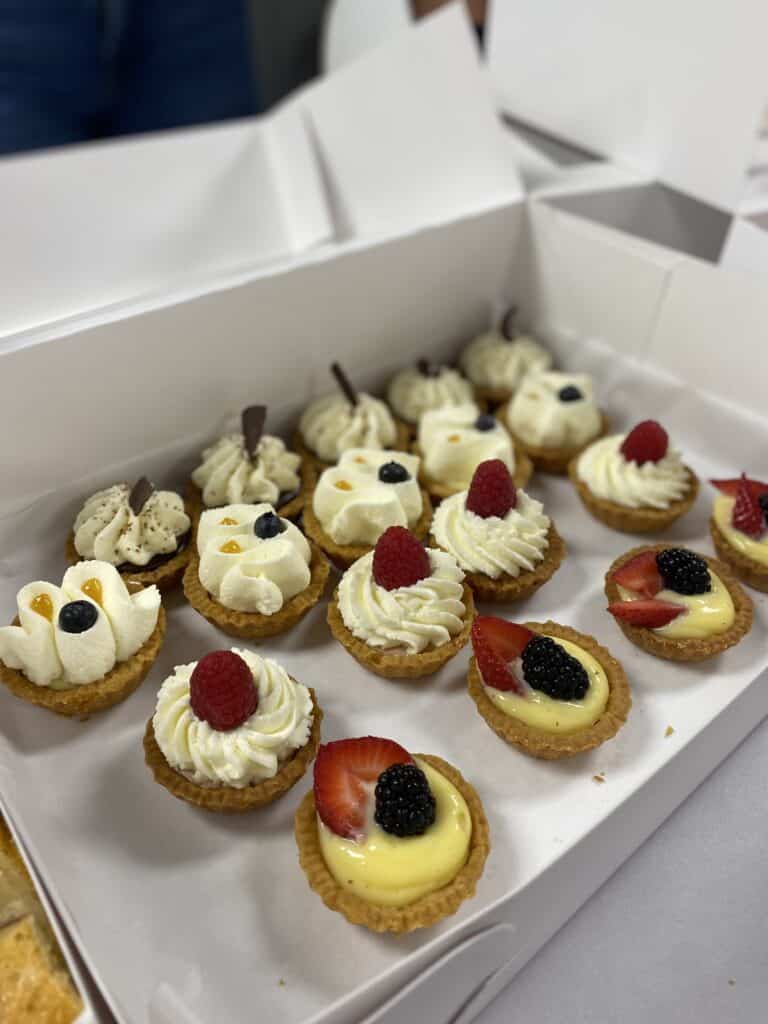
The inspiration behind the event
With a (very) full stomach, I caught up with PCBA President Lisa Proctor to talk about the event.
“We knew that COVID was really hard on a lot of our restaurants to get people back in,” said Proctor. “We wanted to do it in June because we wanted to celebrate our military. Everybody remembers them maybe on Memorial Day or different things, but June is the 80th anniversary of D-Day.”
“The military is always close to our heart,” she added. “We’re also very proud of our restaurants. They all have gone above and beyond.”
Tonight, the PCBA was honoring the Armed Forces and its brave veterans while bestowing two donation checks to very worthy causes.
The first check for $500 went to Folds of Honor. Since 2007, Folds of Honor has provided life-changing scholarships to the spouses and children of America’s fallen or disabled military. And now, their mission expands to the families of America’s first responders.
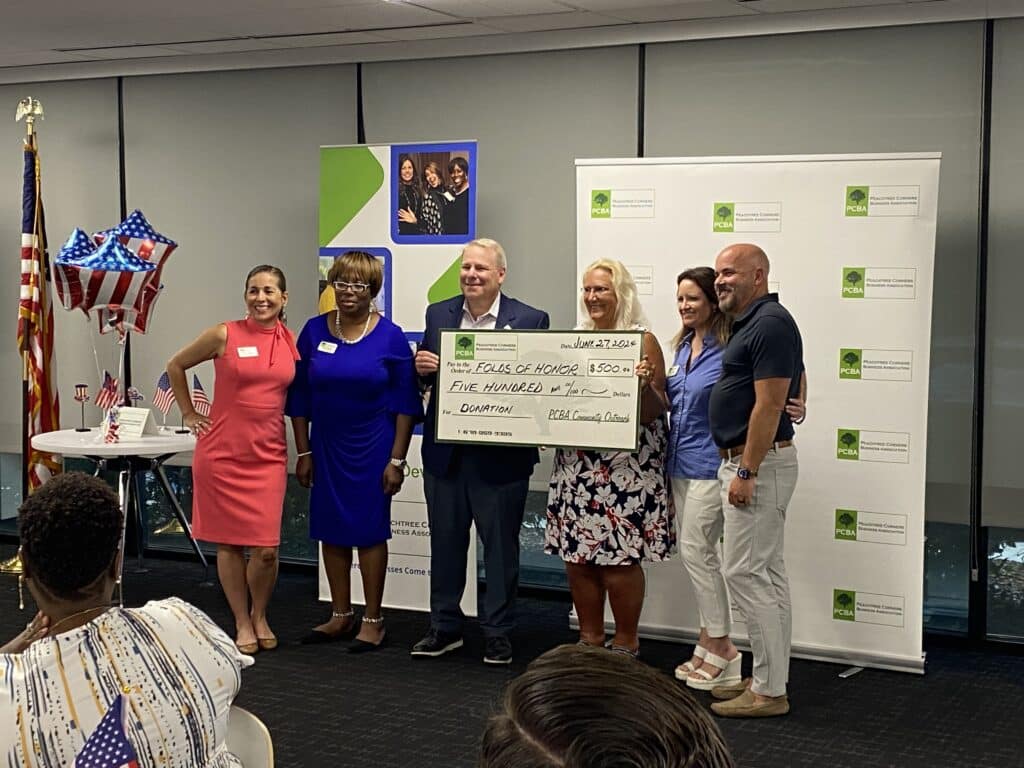
The second check for $500 was given to Light Up the Corners, a 501(c)(3) volunteer organization with an annual glowing, flashing, blinking, shining, nighttime running party and fundraiser in one. All proceeds from the event go to benefit less fortunate children and families in the Peachtree Corners community who are struggling by giving them the chance to participate in life-enhancing programs and activities at the Fowler YMCA.

Over the past 12 years, the PCBA has awarded 19 scholarships and donated more than $156,000+ back to the Peachtree Corners community.
Related
Business
Local Resident Opens AtWork Location in Peachtree Corners
Published
2 weeks agoon
July 10, 2024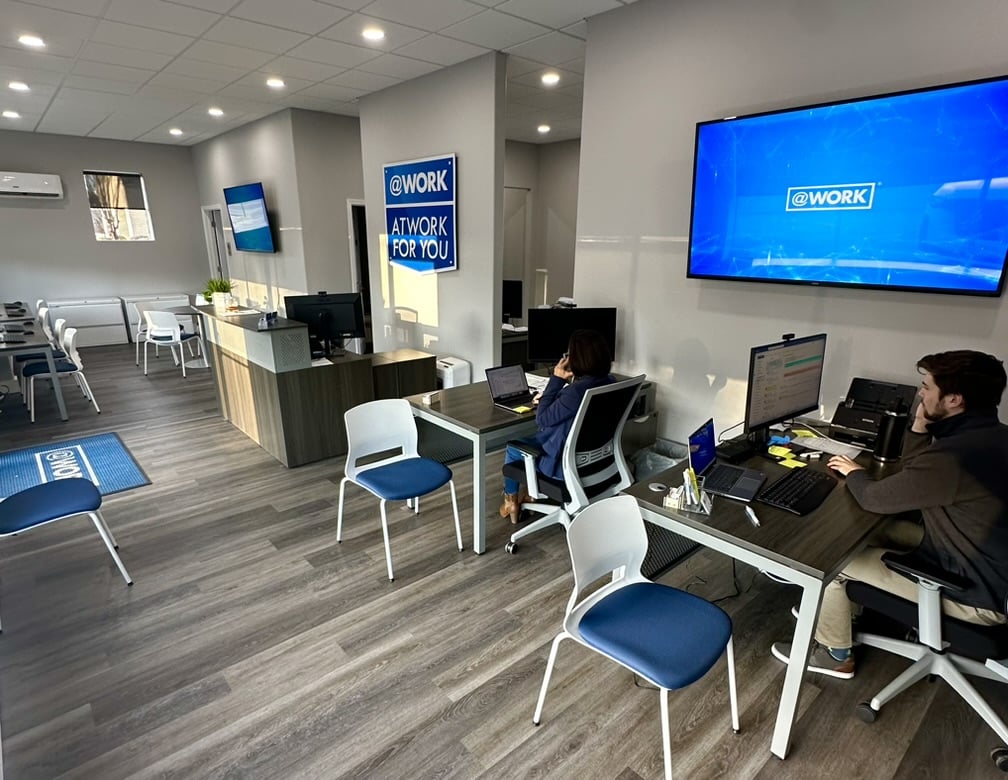
AtWork, one of nation’s leading staffing franchises, has opened its third Metro Atlanta location in Peachtree Corners, Georgia at 6185 Buford Highway, Suite E-100.
AtWork Peachtree Corners is locally-owned by Kamal Bhatia, an immigrant from India with decades of experience in hospitality and as the Senior Vice President of Operations of Atlanta-based Action Bartending School.
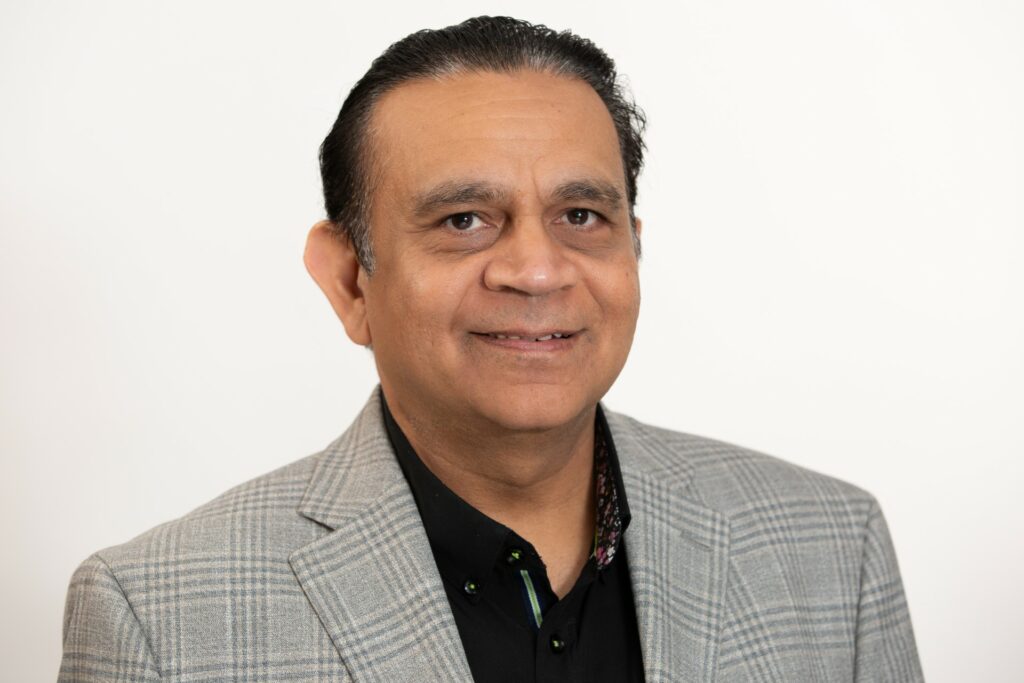
“There is an incredible need for AtWork’s services in Peachtree Corners,” said Bhatia. “Since migrating here in 1996, I’ve witnessed Atlanta evolve and sprout new communities north of the city, including my own. Peachtree Corners has become a hub for thriving businesses, and my goal with this location is to be a key resource between companies and job seekers to support the continued growth of our local economy.”
Bhatia’s son and daughter will assist him in the business.
“This is an opportunity to create a legacy company to ensure our community is supported for generations to come,” he said.
For more than three decades, AtWork’s mission has been to connect people with jobs and jobs with people. With more than 100 locations nationwide, AtWork puts nearly 40,000 individuals to work each year in administrative, light-industrial, accounting and finance, hospitality, IT and management-level positions at some of the nation’s largest and most recognizable companies.
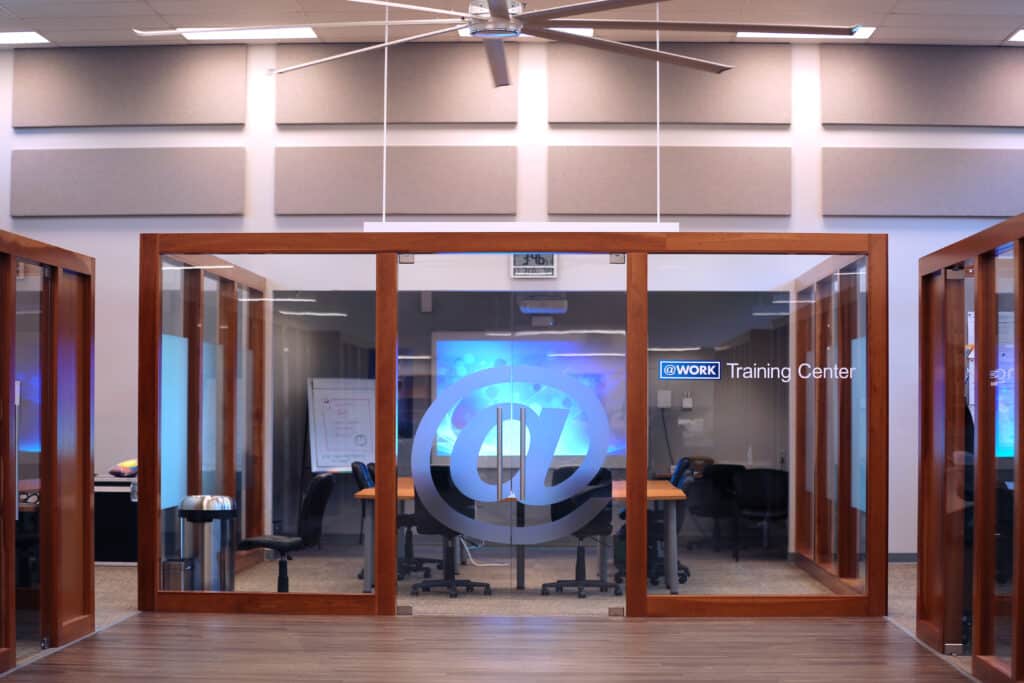
“We’re proud to open our doors in Peachtree Corners and provide a common place for both job seekers and growing businesses to turn for staffing solutions,” said Jason Leverant, President and COO of AtWork.
“AtWork will serve as a key resource to help employees thrive, businesses prosper and communities flourish. Kamal is the perfect partner to champion our mission and be a servant leader in her local community,” he added.
Related
Read the Digital Edition
Subscribe
Keep Up With Peachtree Corners News
Join our mailing list to receive the latest news and updates from our team.
You have Successfully Subscribed!

What’s going on at Jones Bridge Park and the Challenges of Urban Development

Taste of Peachtree Corners: PCBA Showcases Local Restaurants

The Forum Gives Sneak Peek of New Eateries and Community Spaces

Southwest Gwinnett Mayors Share Visions for the Future

8 Events Happening In and Around Peachtree Corners This August

Peachtree Corners Shines Bright with Light Up the Corners Glow Race this August

Peachtree Corners Shines Bright with Light Up the Corners Glow Race this August

The Forum Gives Sneak Peek of New Eateries and Community Spaces

8 Events Happening In and Around Peachtree Corners This August

Southwest Gwinnett Mayors Share Visions for the Future

Taste of Peachtree Corners: PCBA Showcases Local Restaurants

What’s going on at Jones Bridge Park and the Challenges of Urban Development

Local Resident Opens AtWork Location in Peachtree Corners

CHRIS 180 Expands its Services into Gwinnett County [Podcast]

Light up the Corners [Video]

Capitalist Sage: Business Leadership in Your Community [Podcast]

Cliff Bramble: A Culinary Adventure through Italy

Top 10 Brunch Places in Gwinnett County

A Hunger for Hospitality

THE CORNERS EPISODE 3 – BLAXICAN PART 1

Top 10 Indoor Things To Do This Winter

The ED Hour: What it takes to Remove Barriers from Education
Peachtree Corners Life
Topics and Categories
Trending
-
Business1 week ago
Taste of Peachtree Corners: PCBA Showcases Local Restaurants
-
Business2 days ago
The Forum Gives Sneak Peek of New Eateries and Community Spaces
-
City Government4 days ago
Southwest Gwinnett Mayors Share Visions for the Future
-
Around Atlanta4 days ago
8 Events Happening In and Around Peachtree Corners This August






